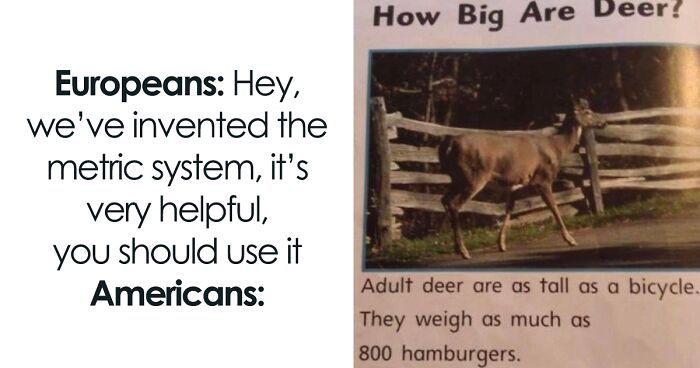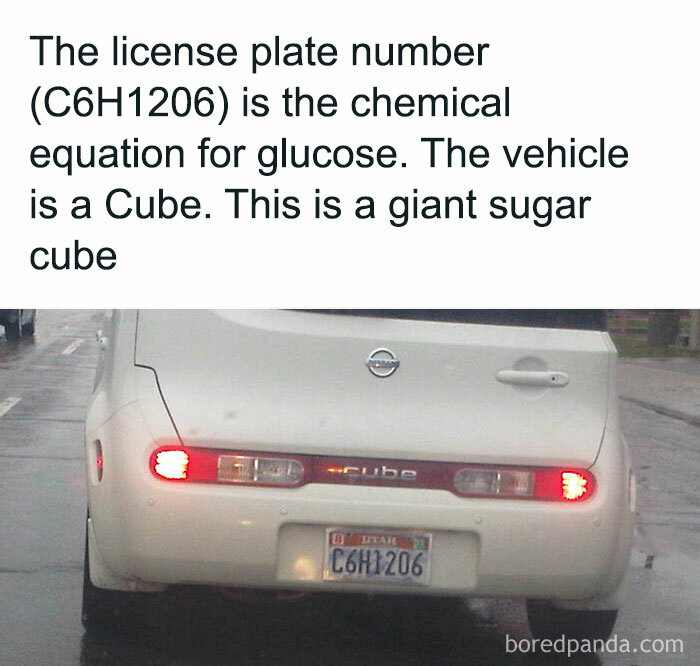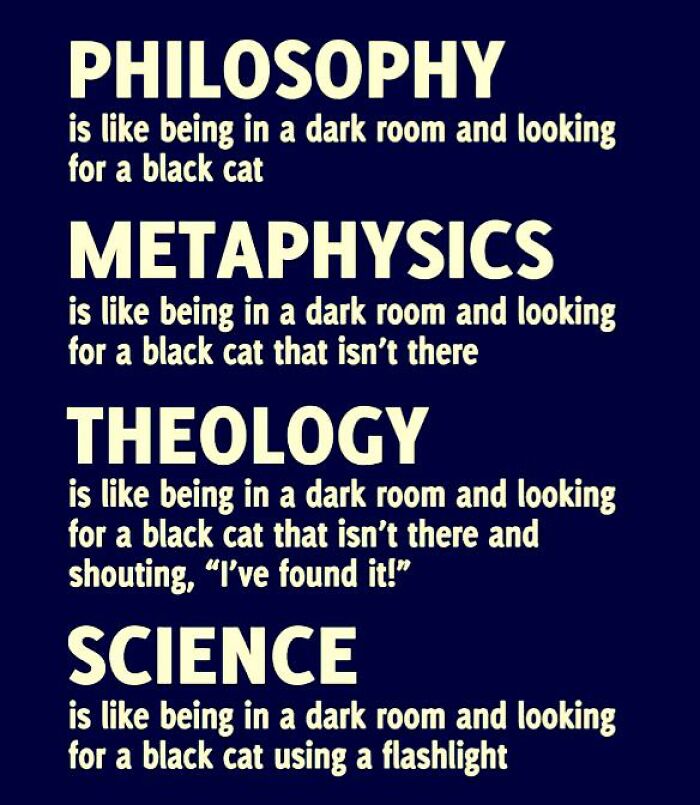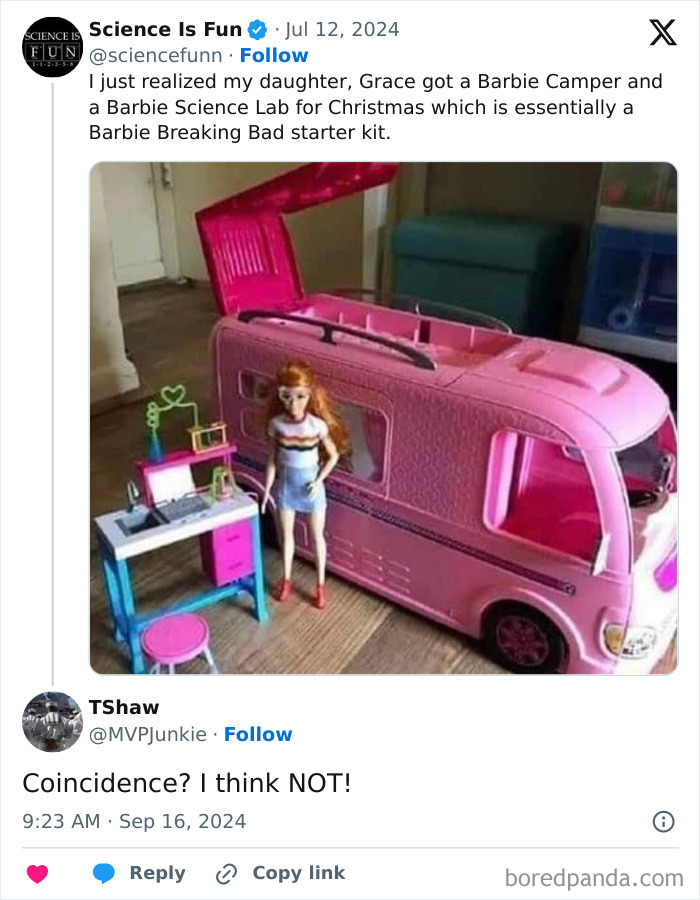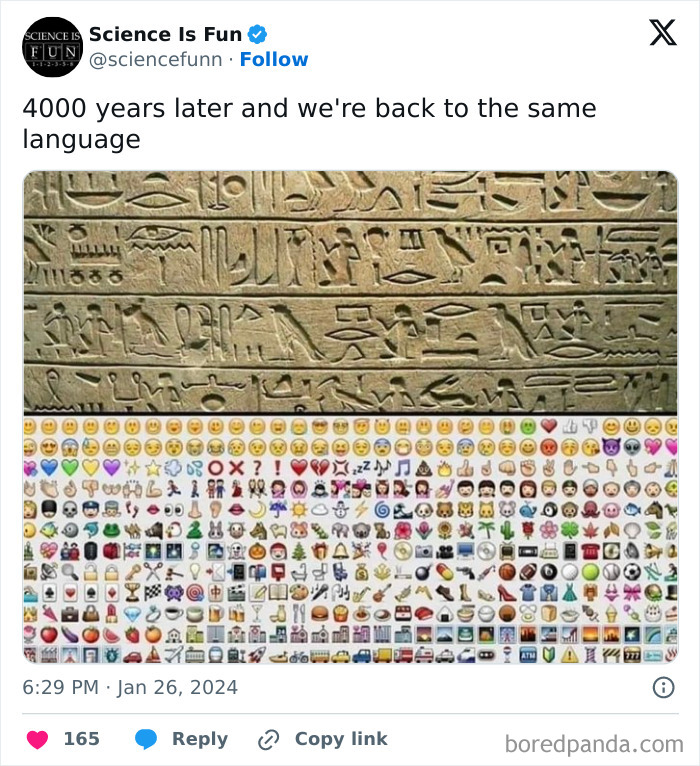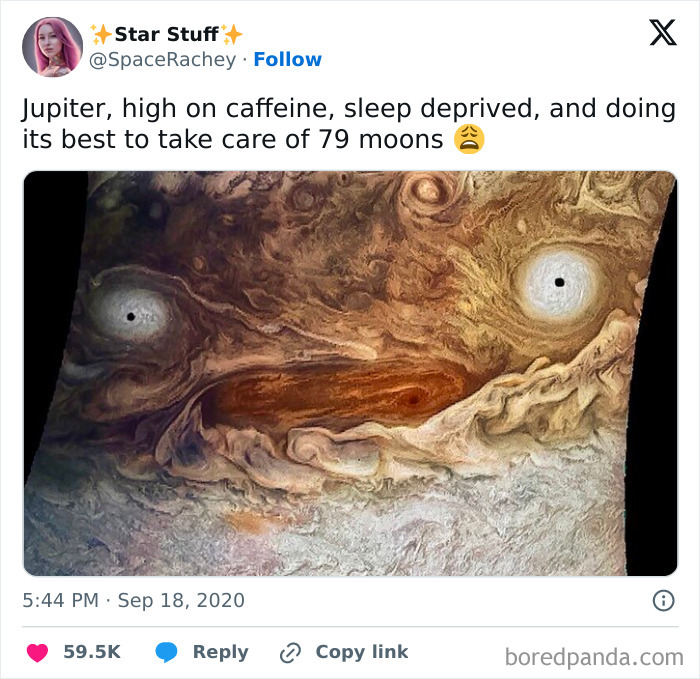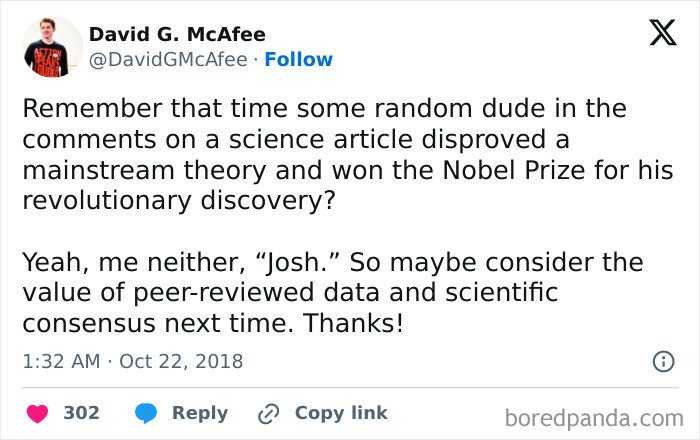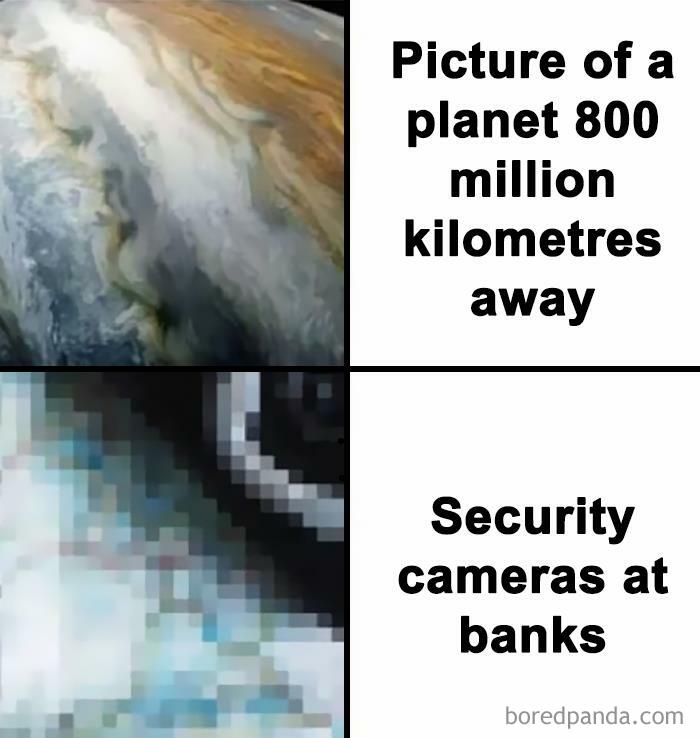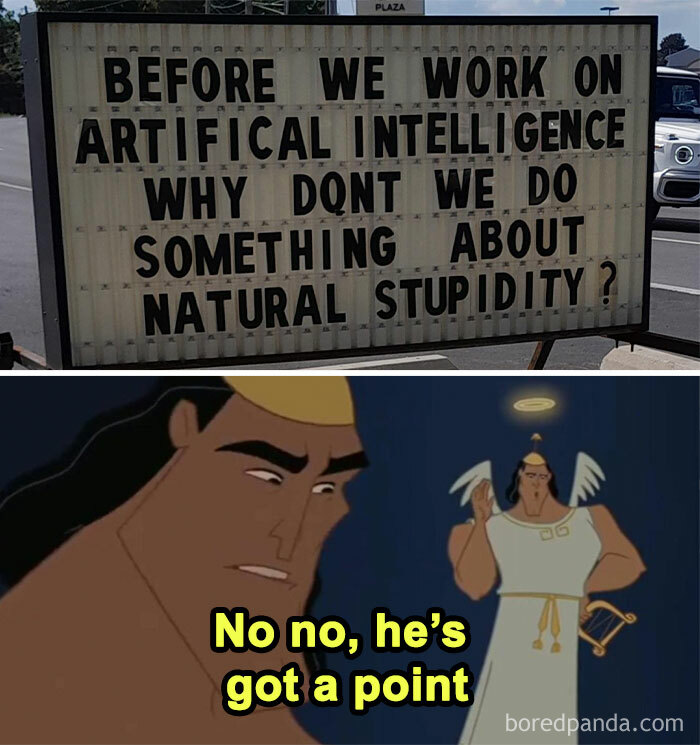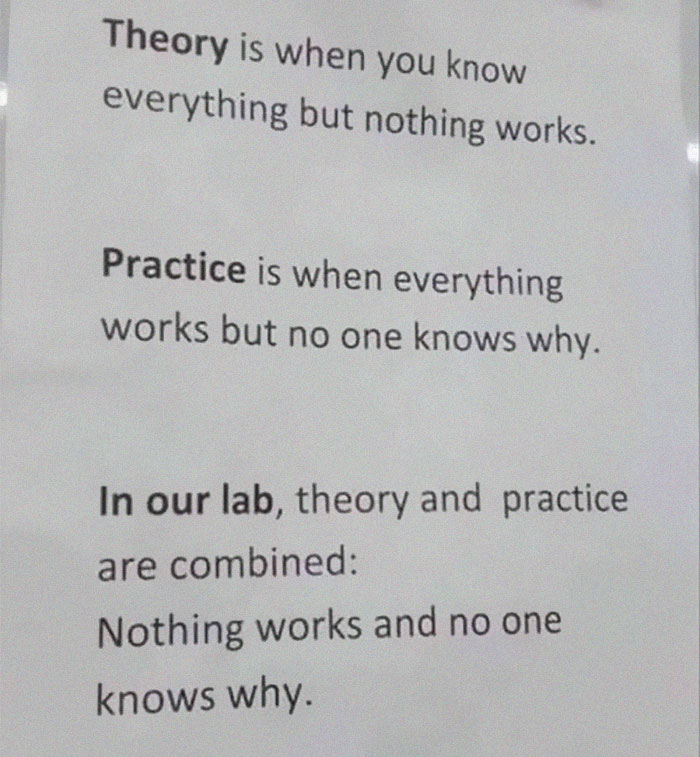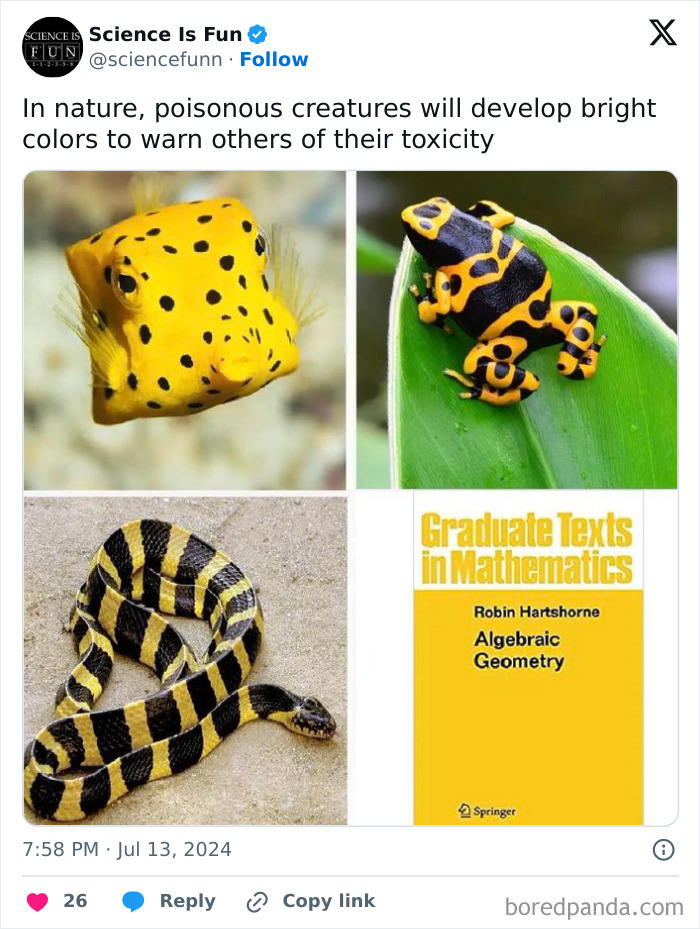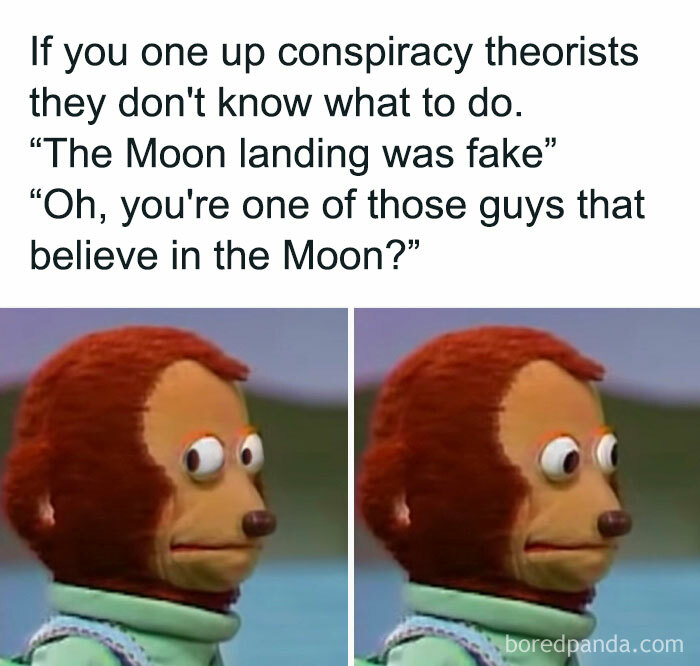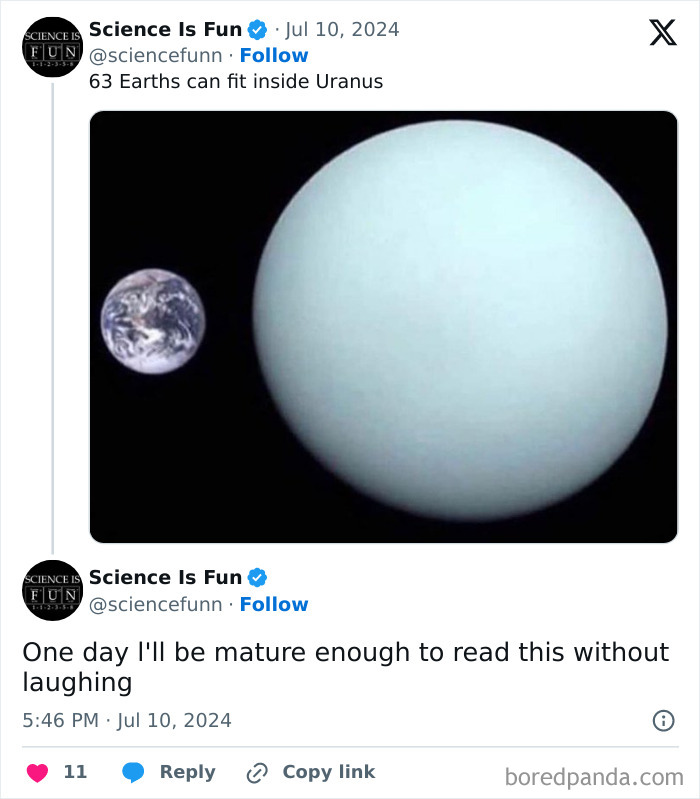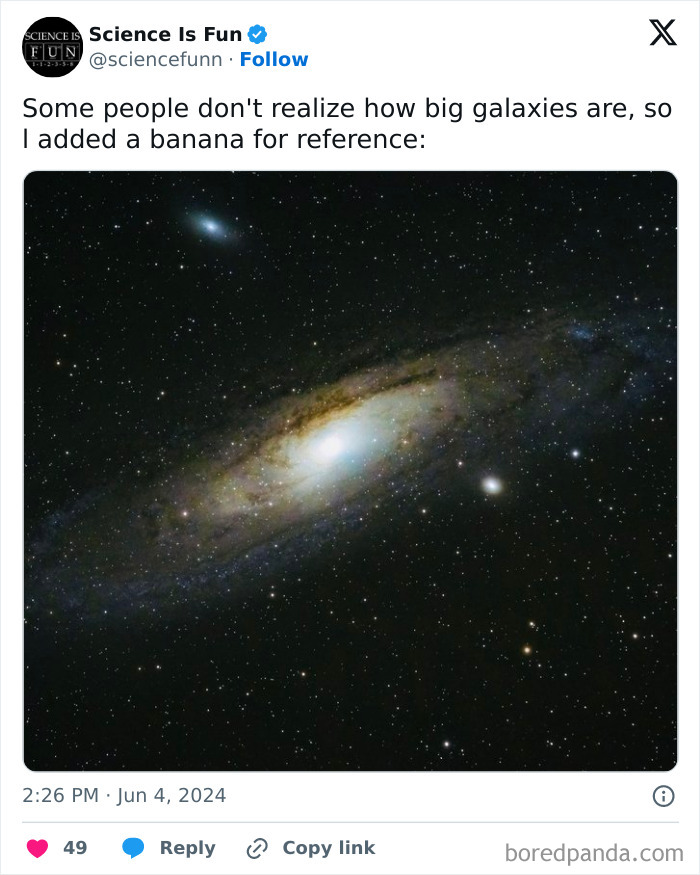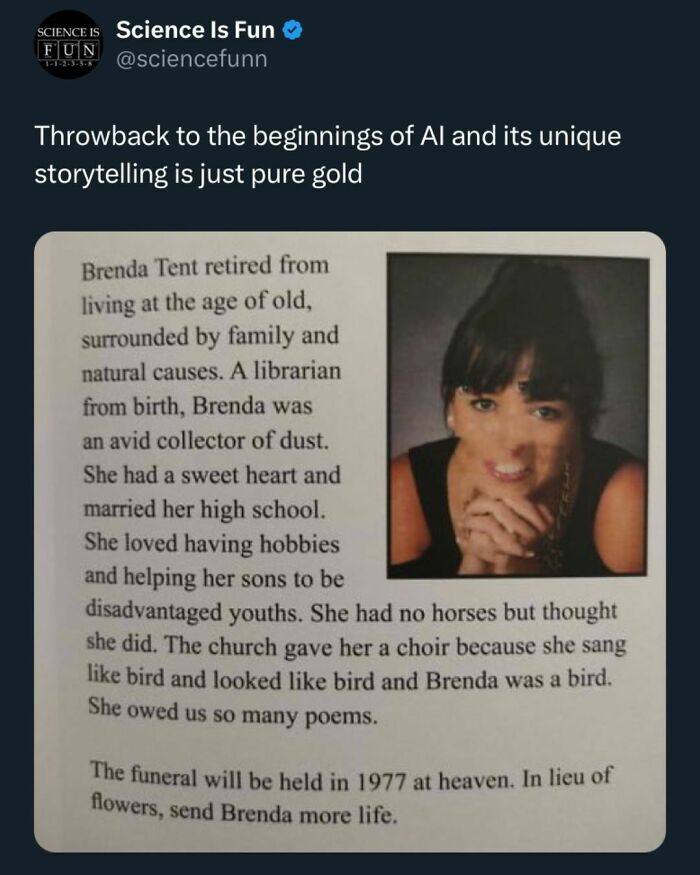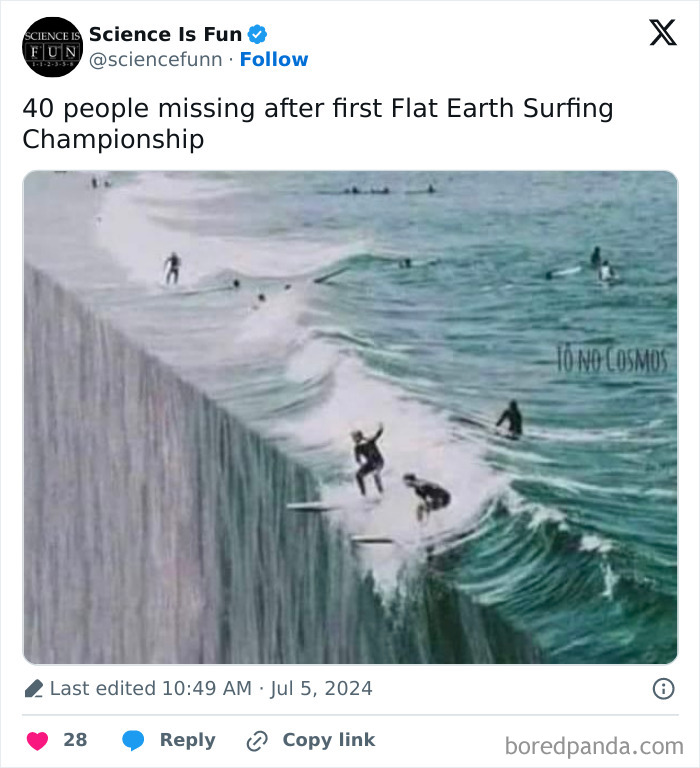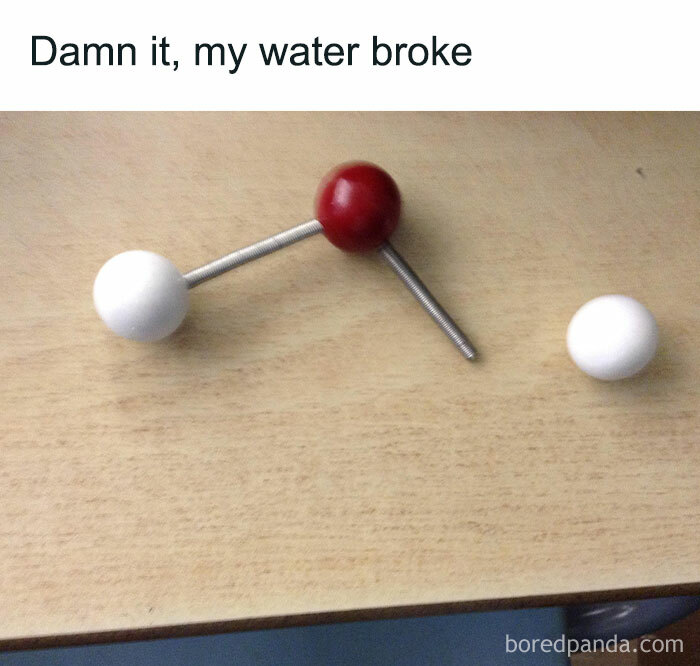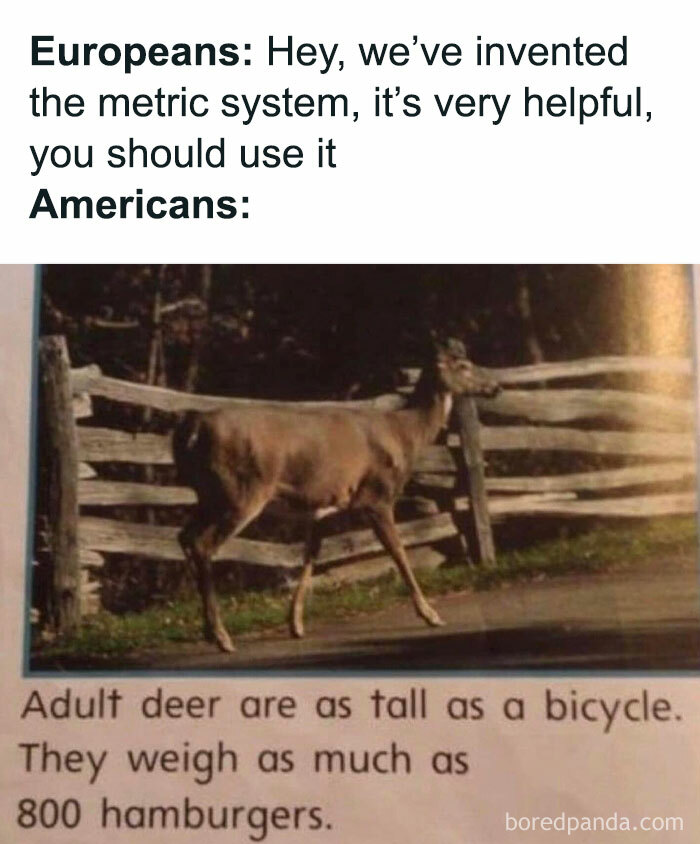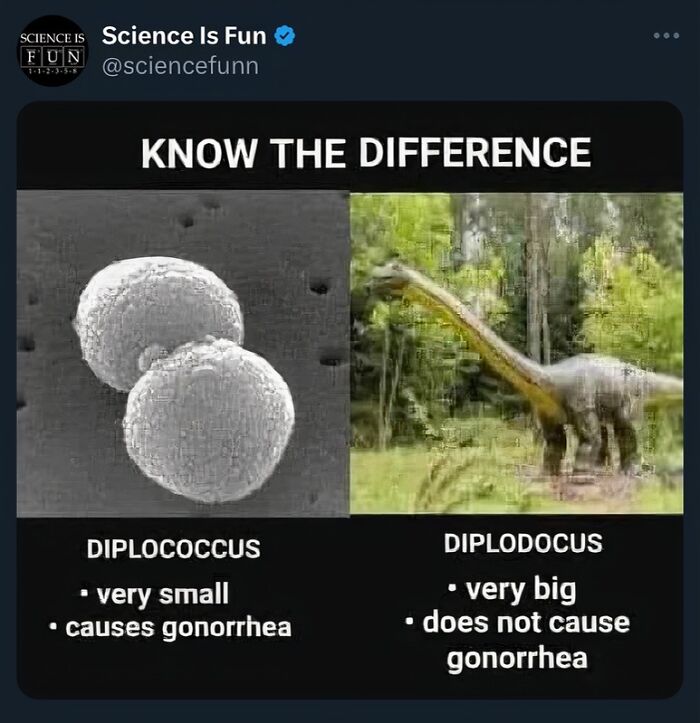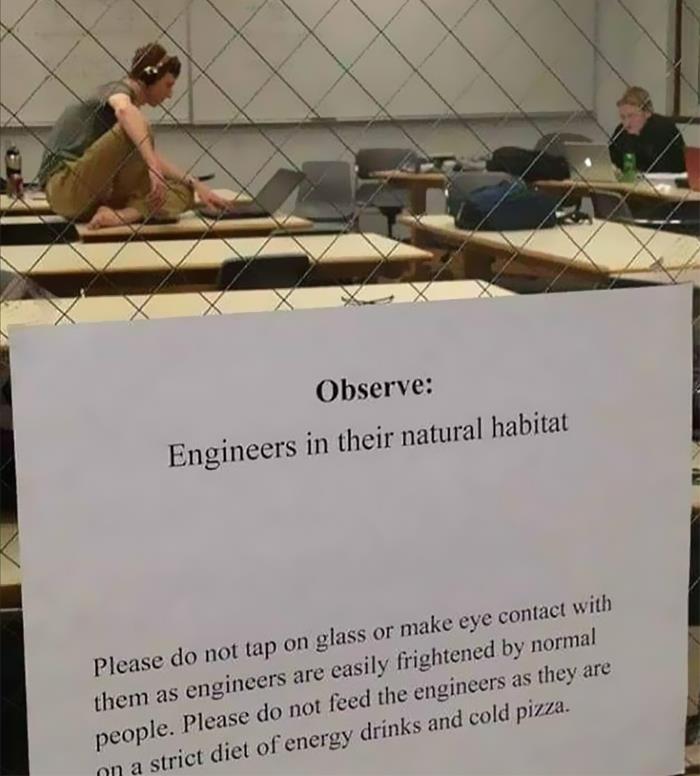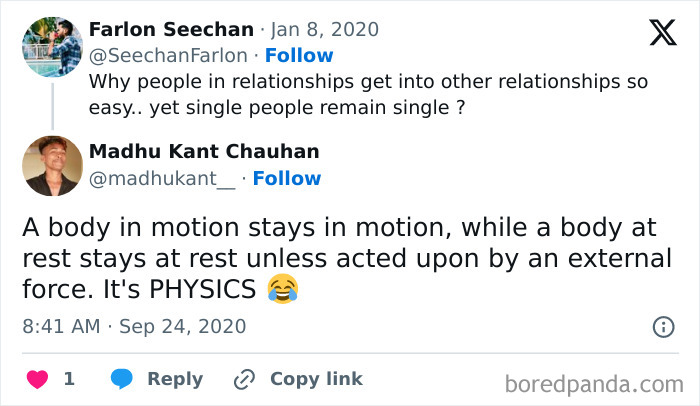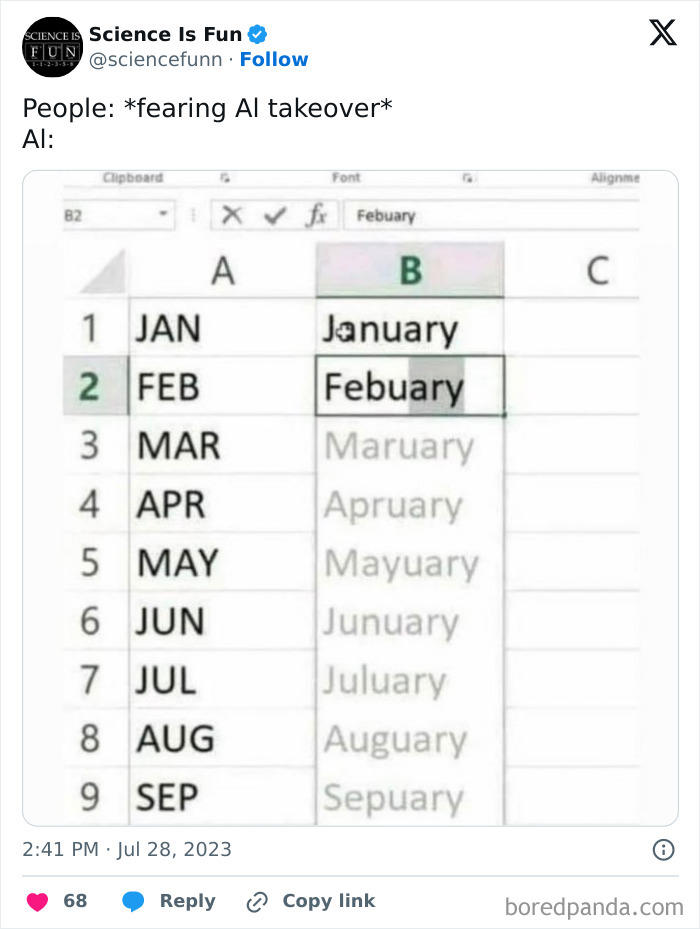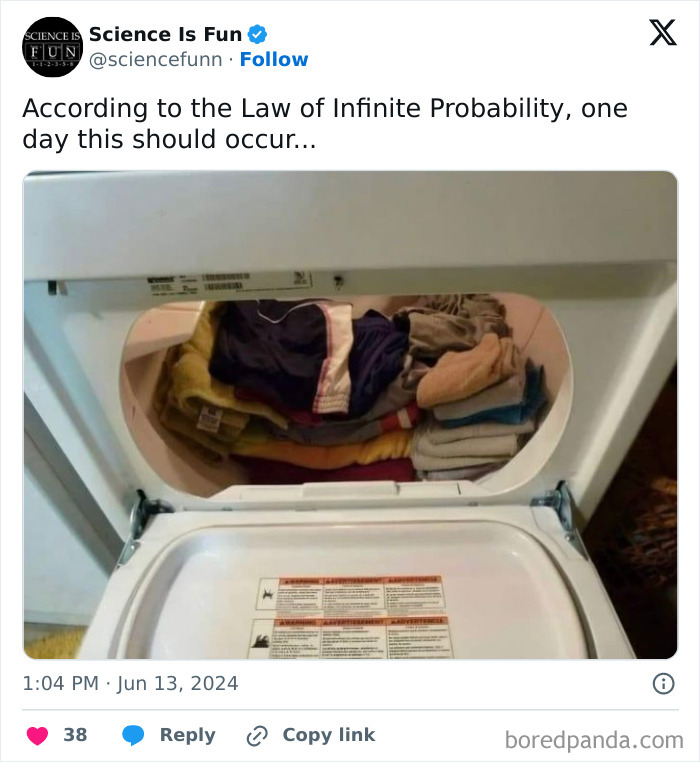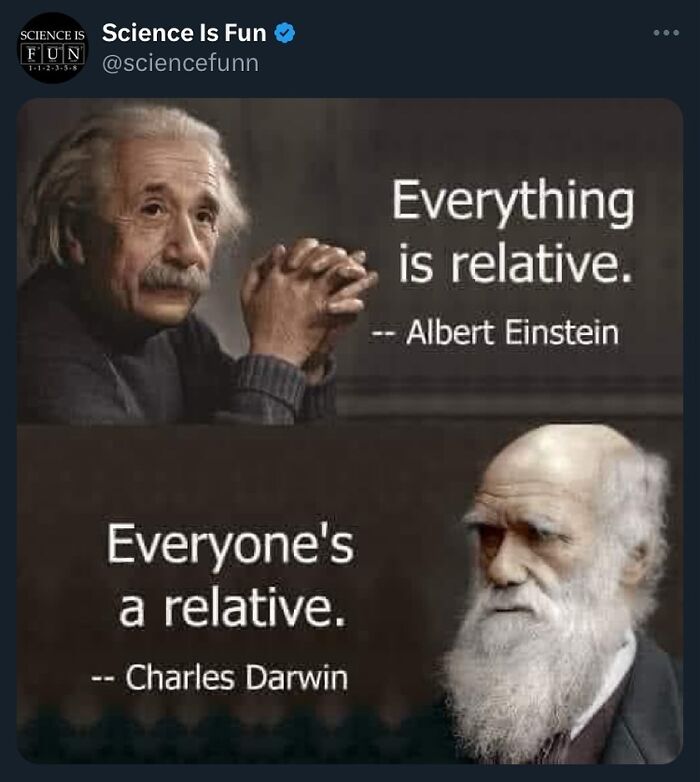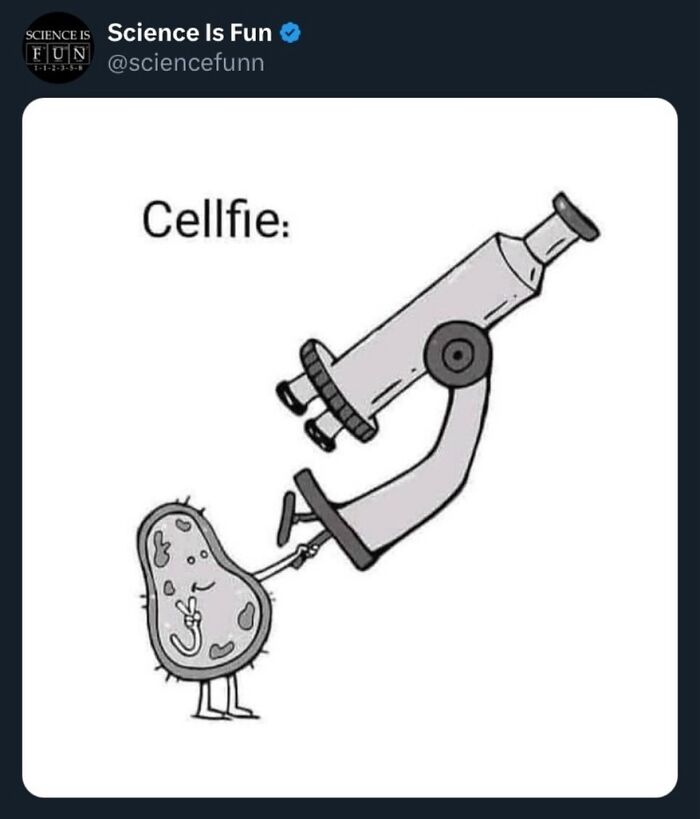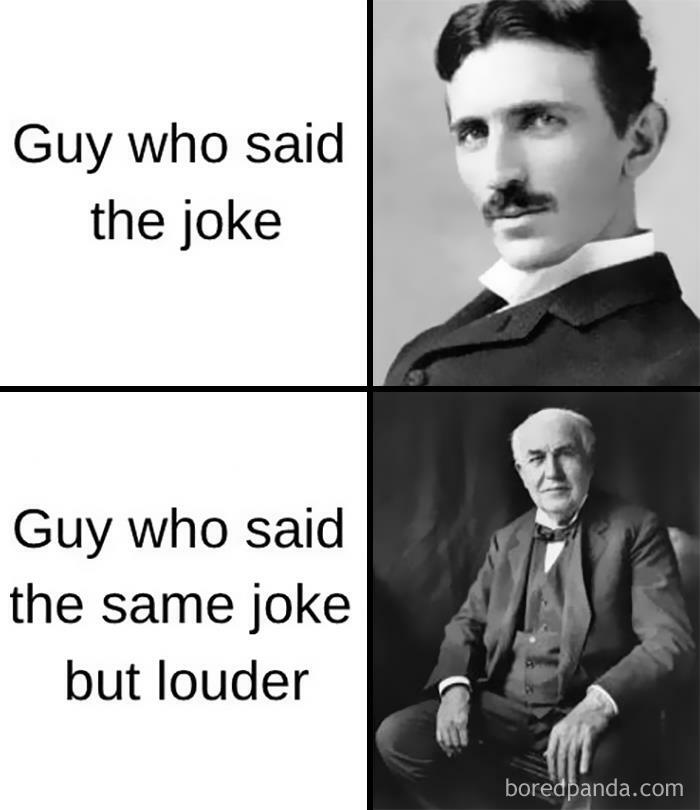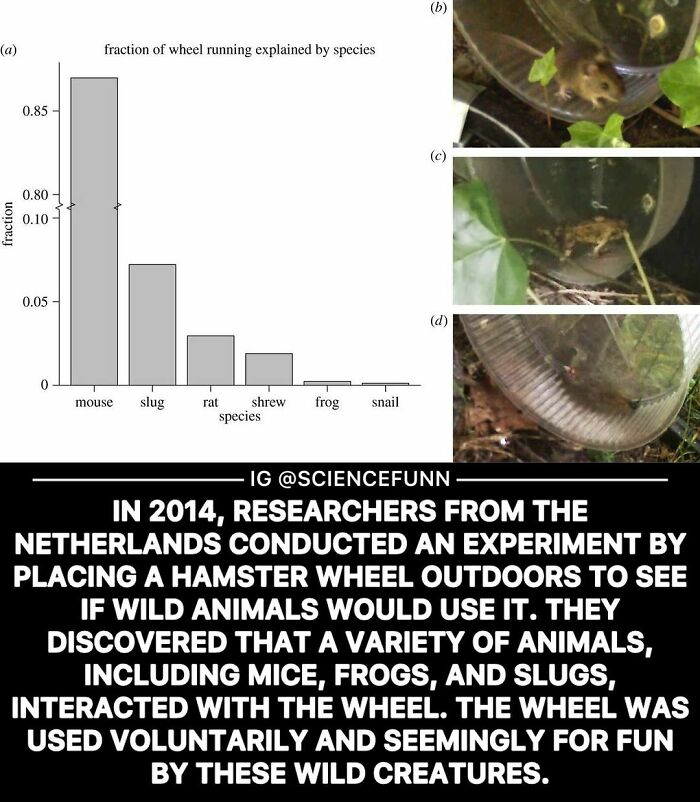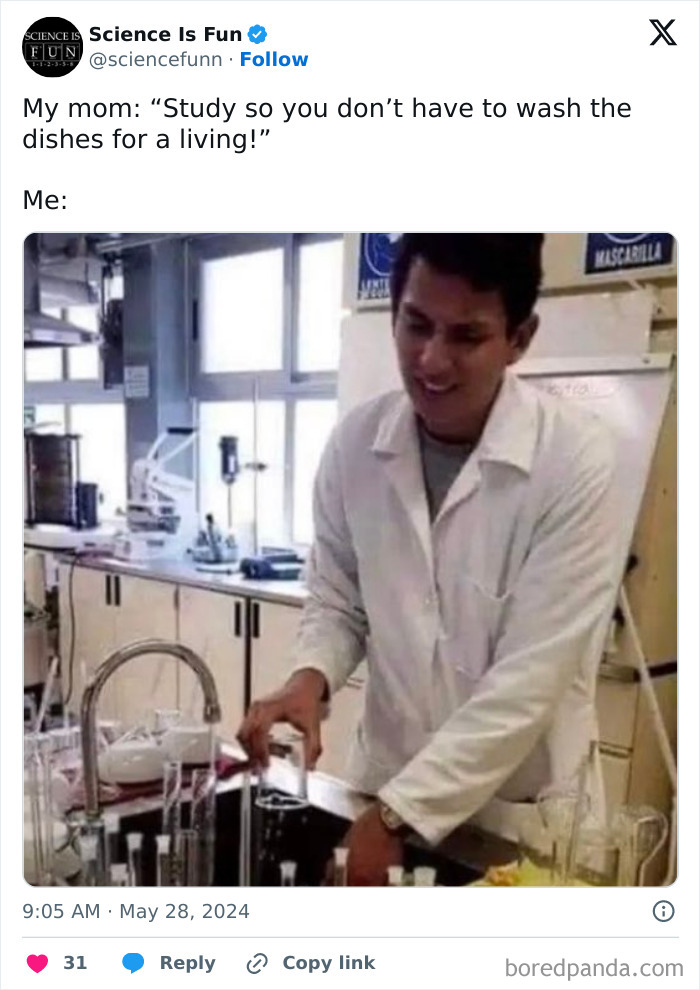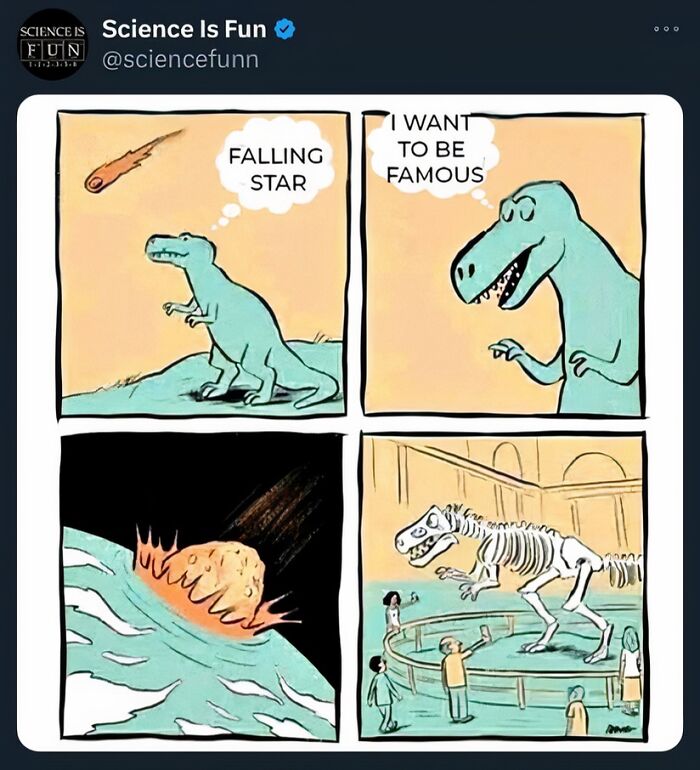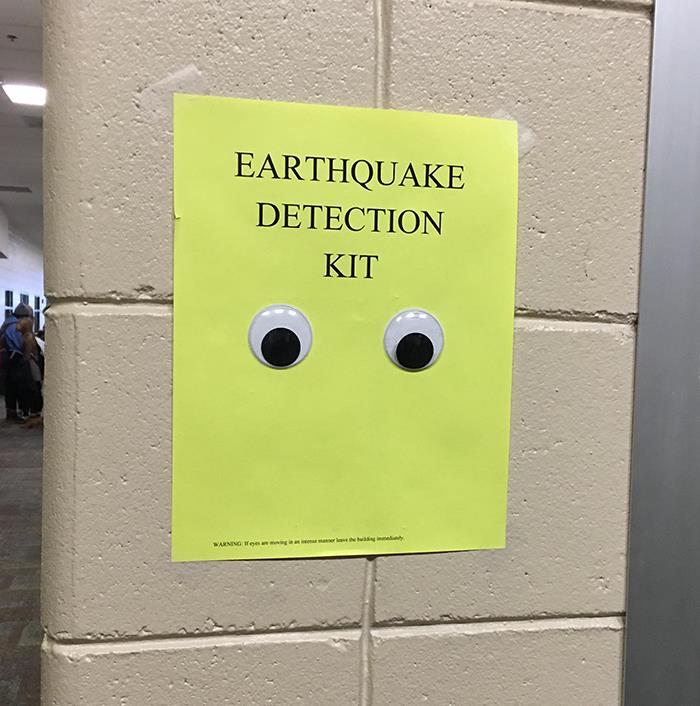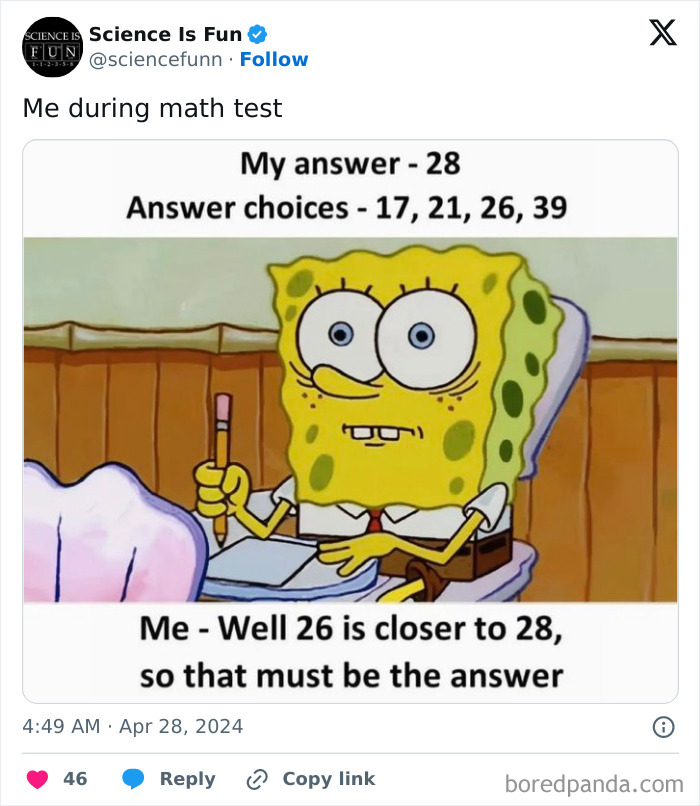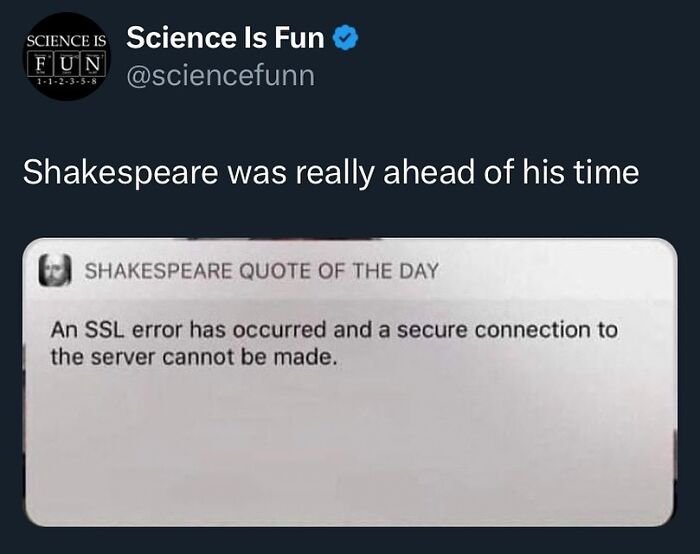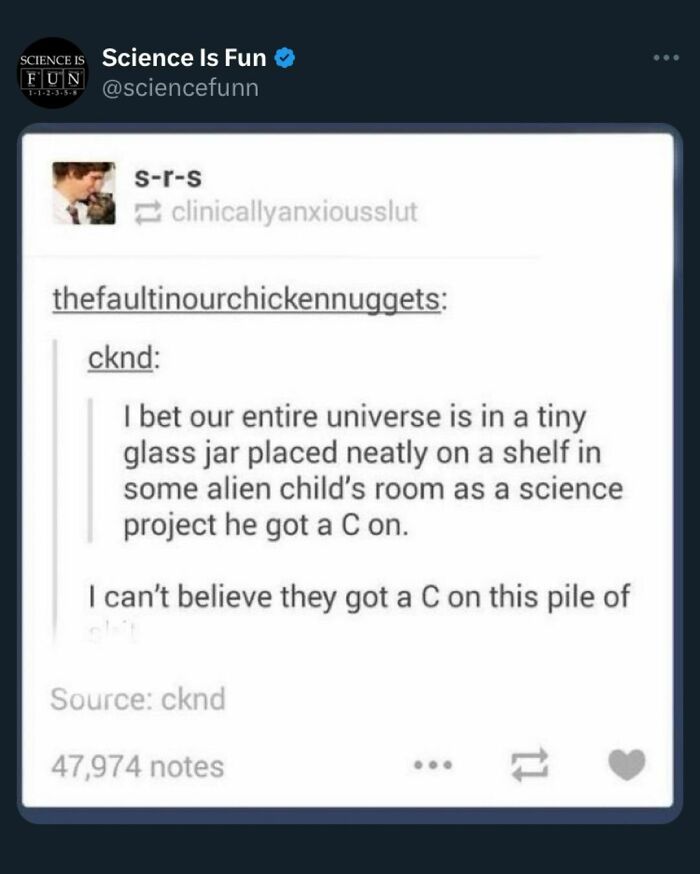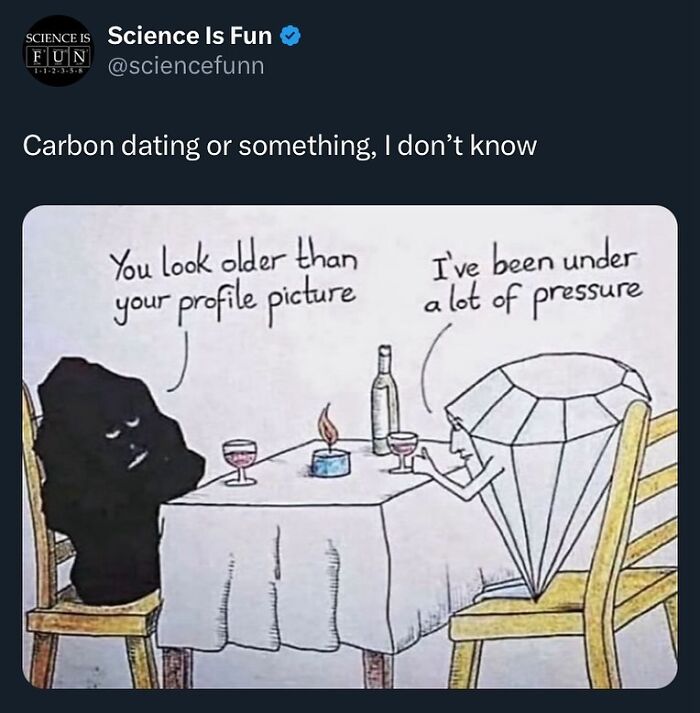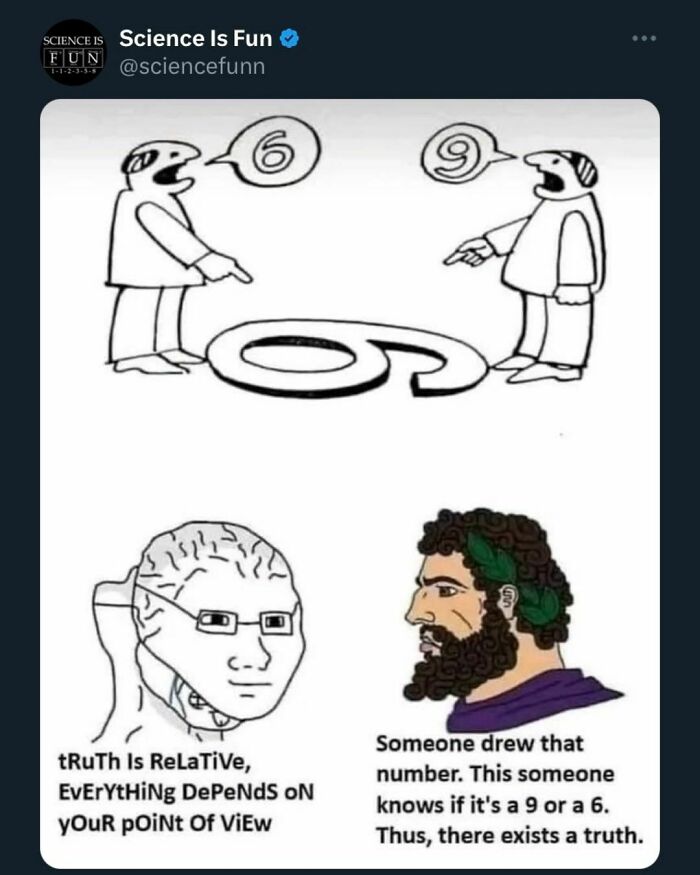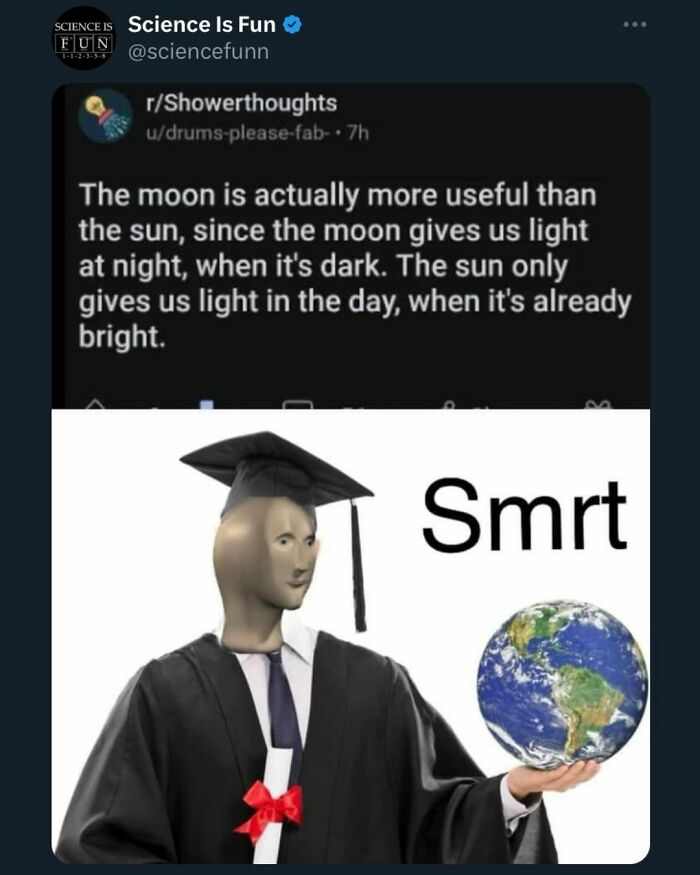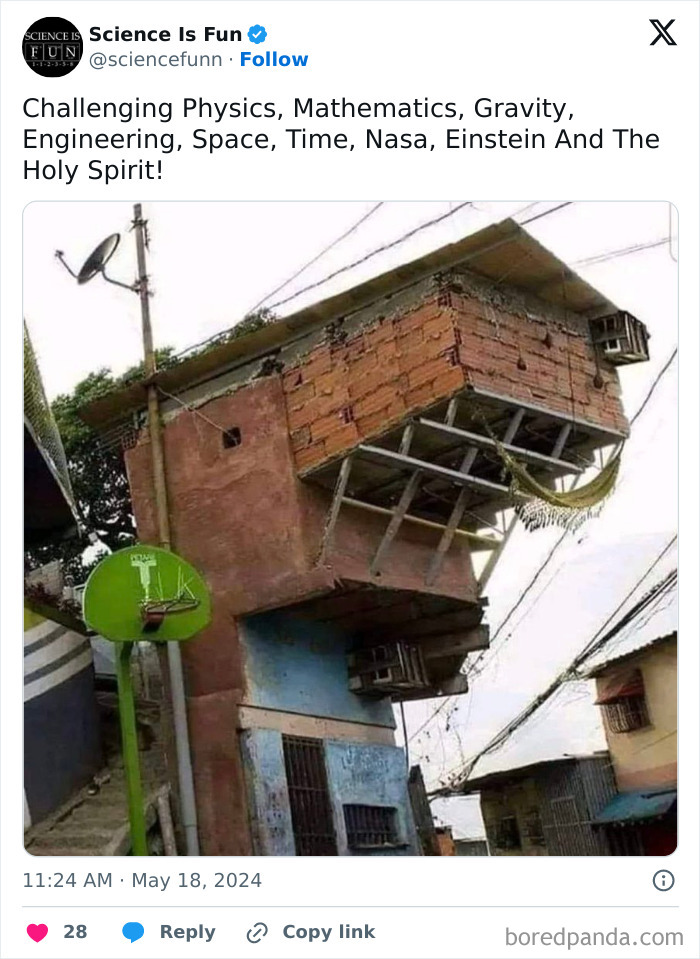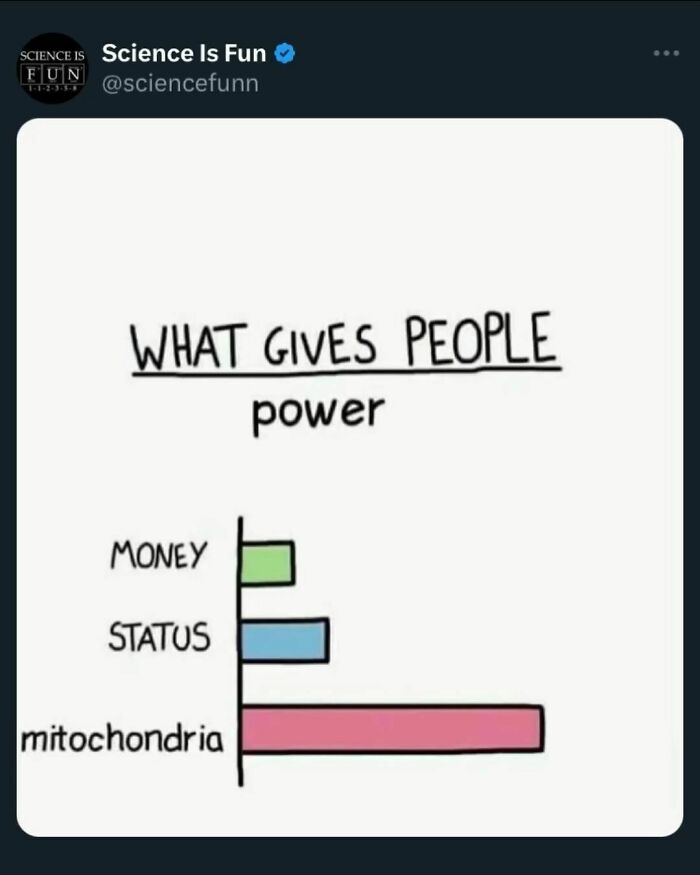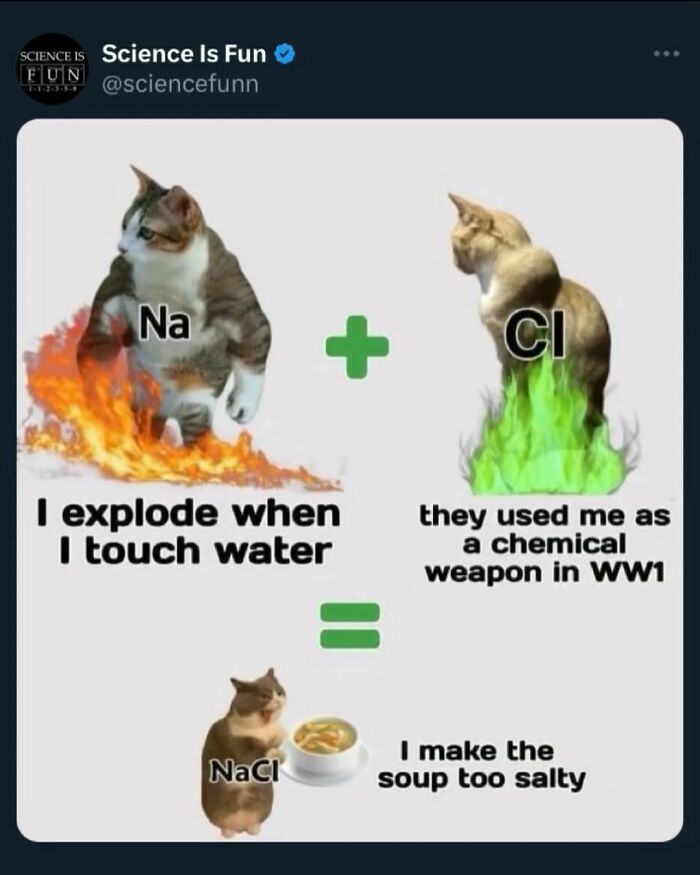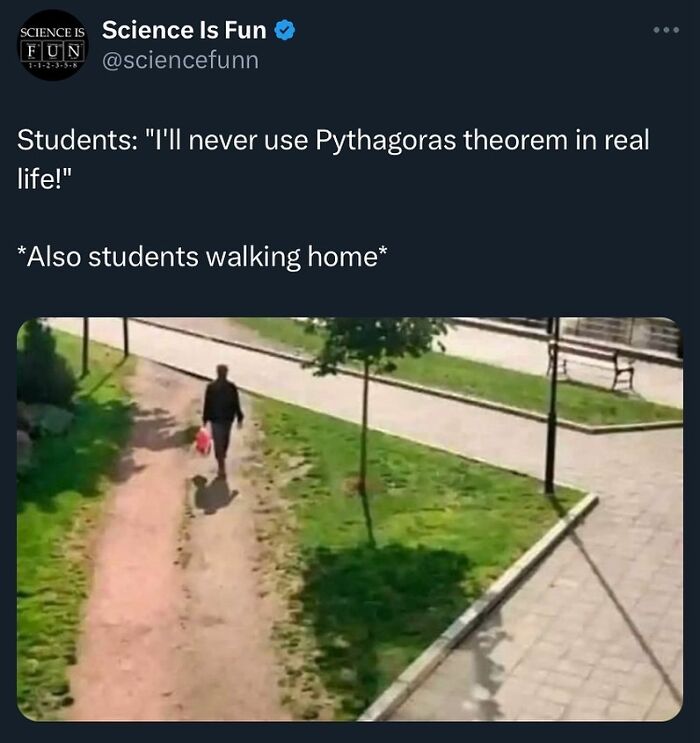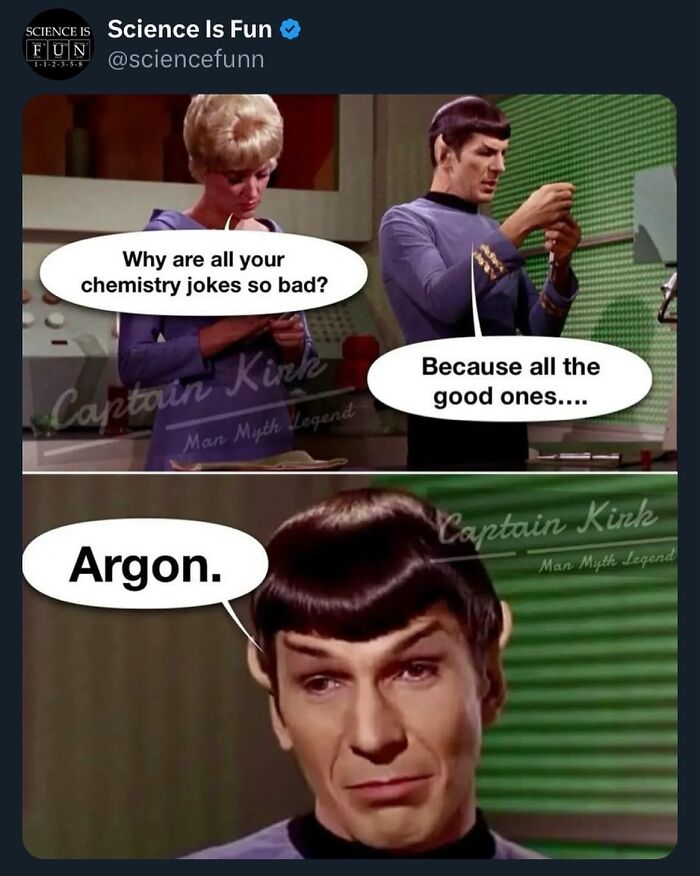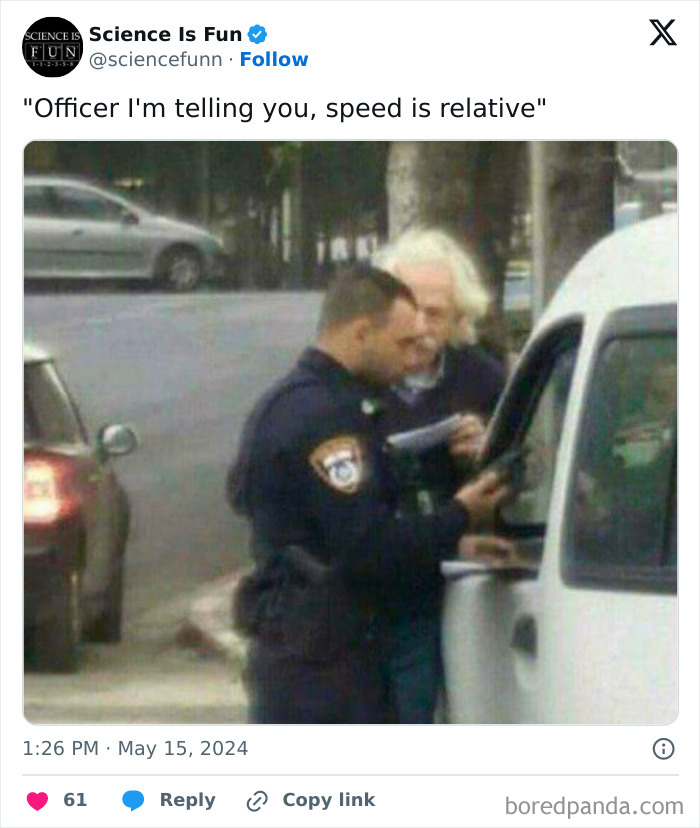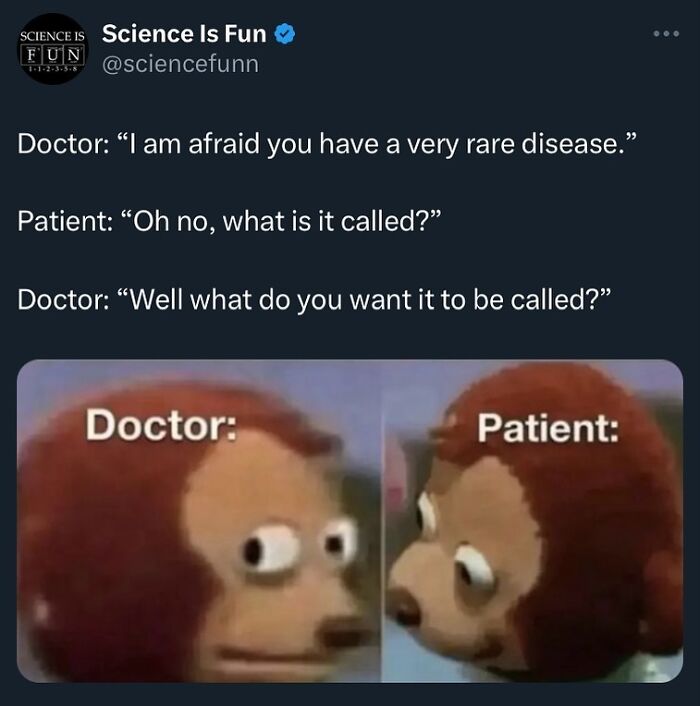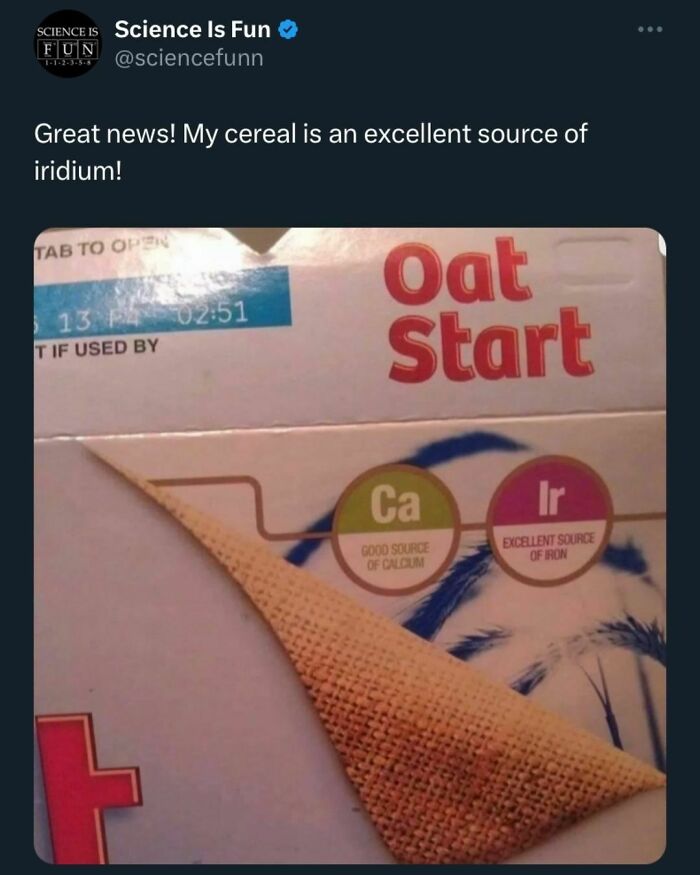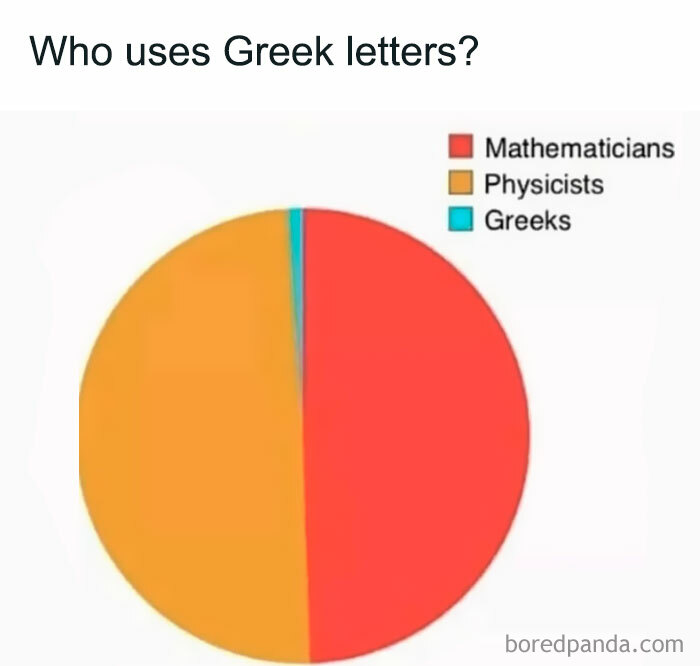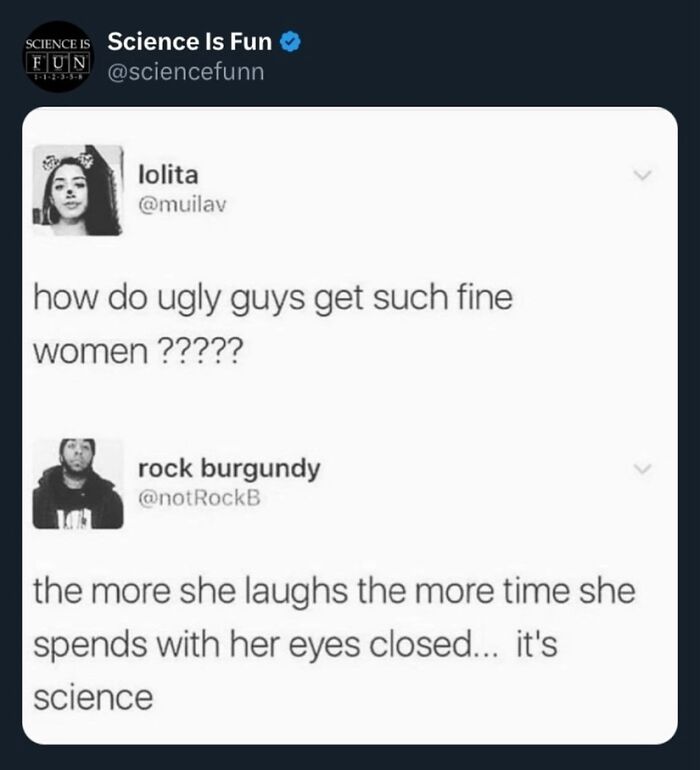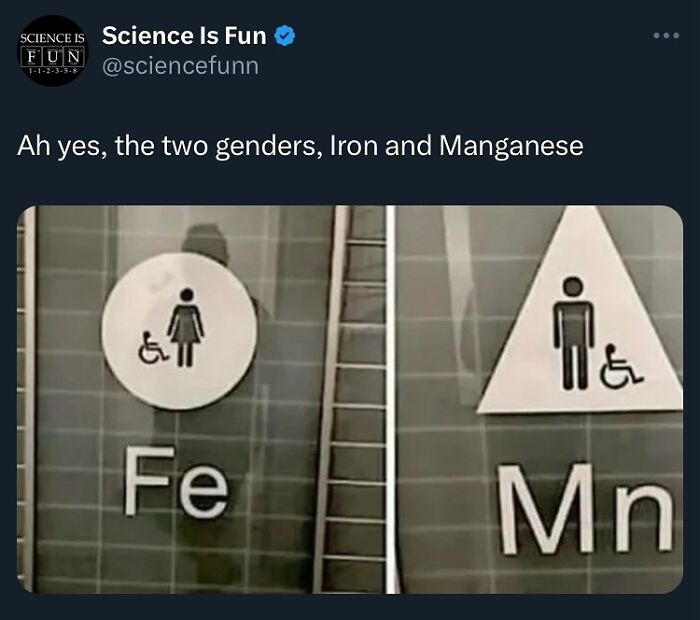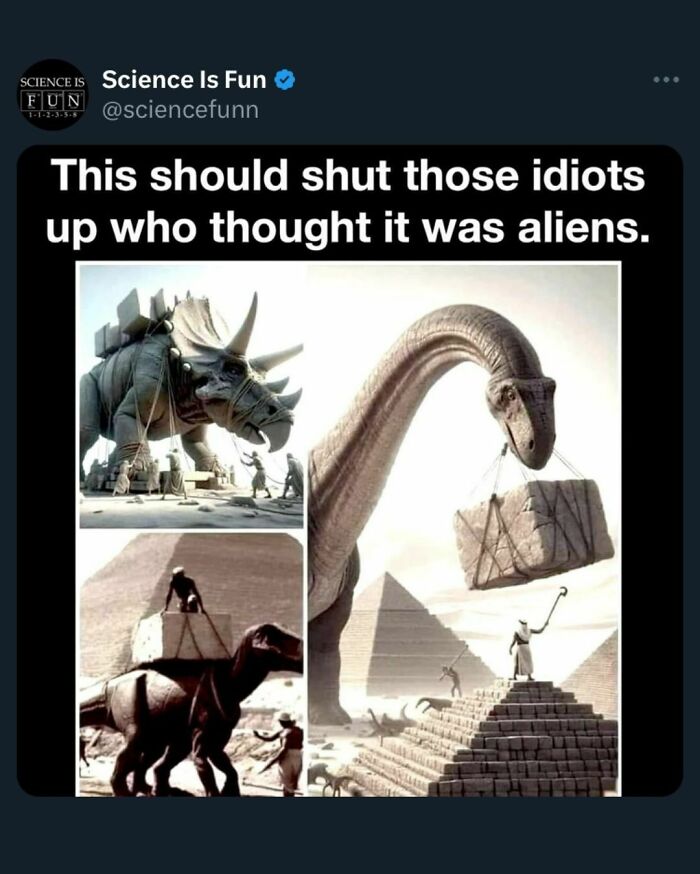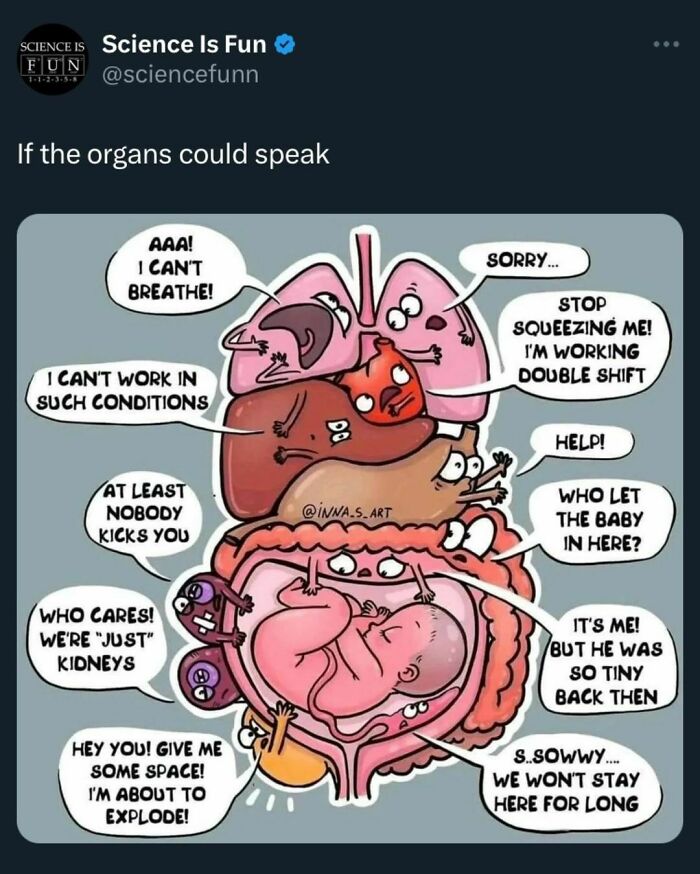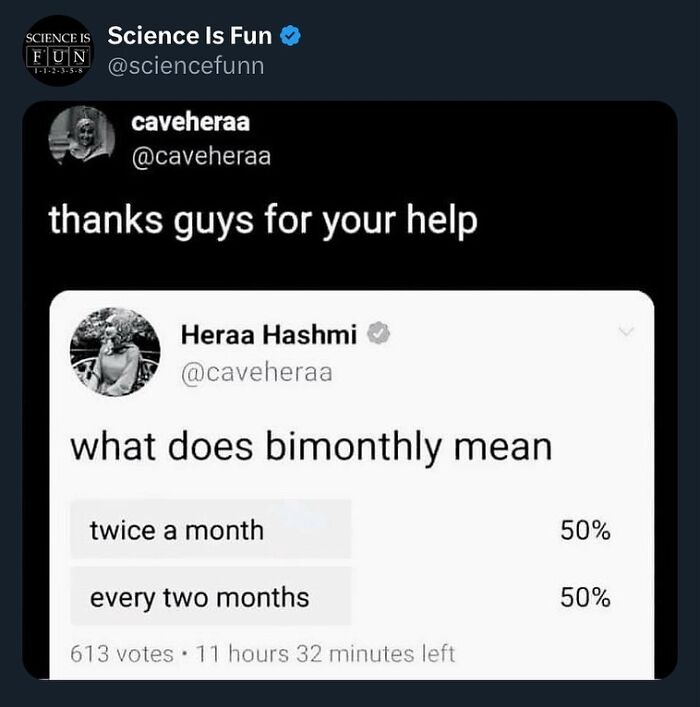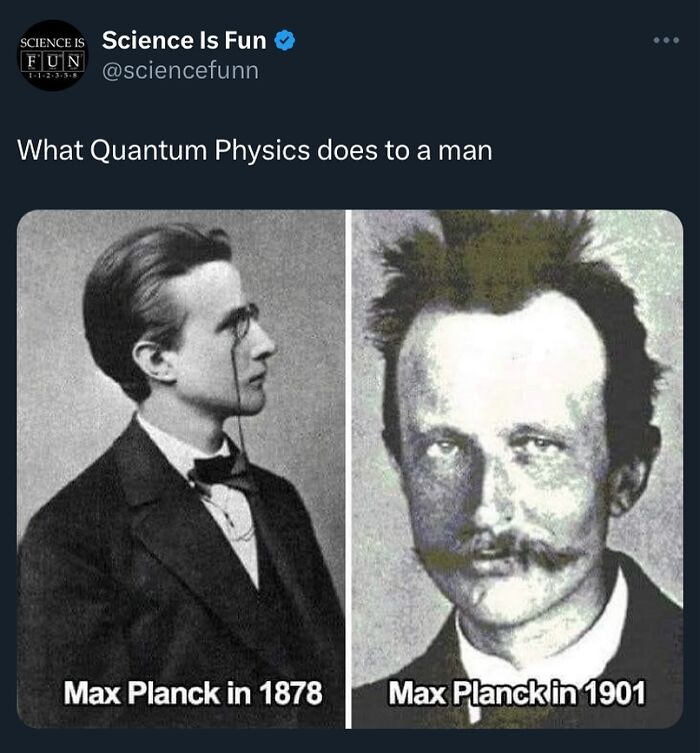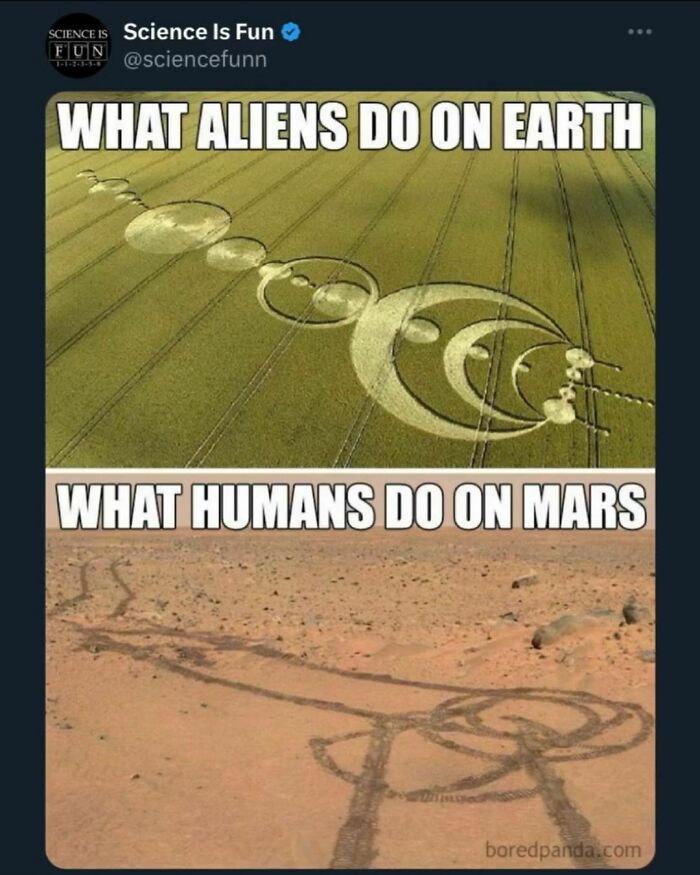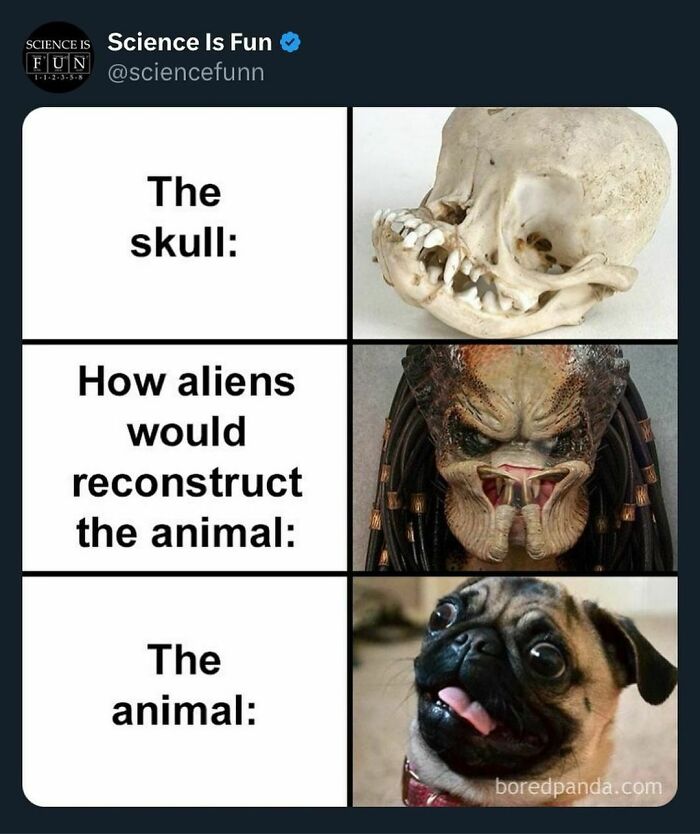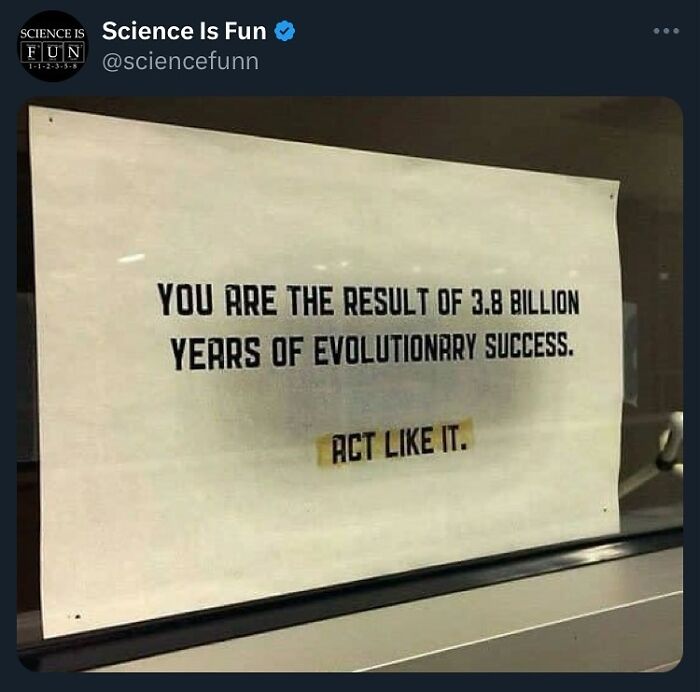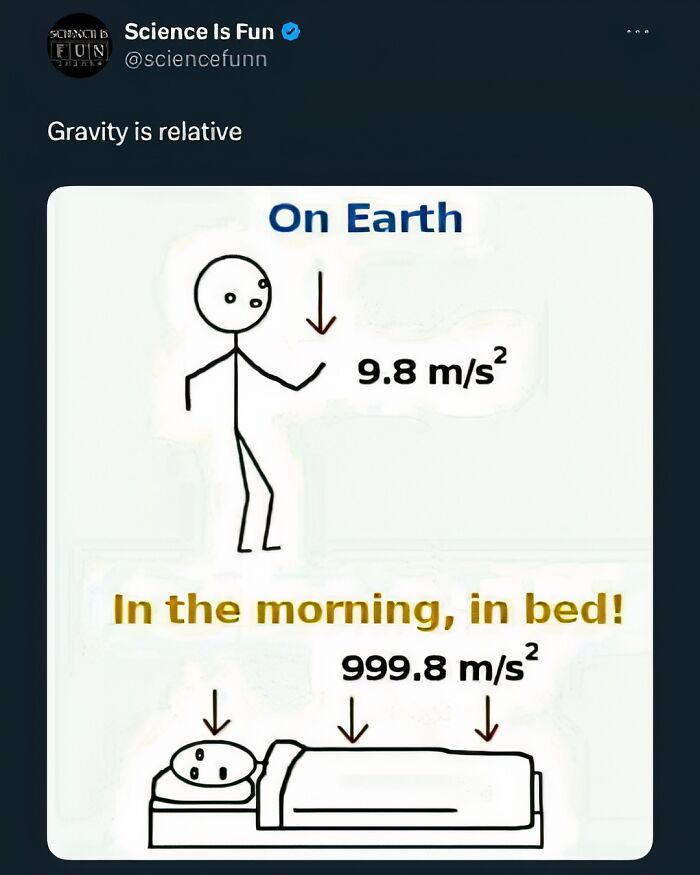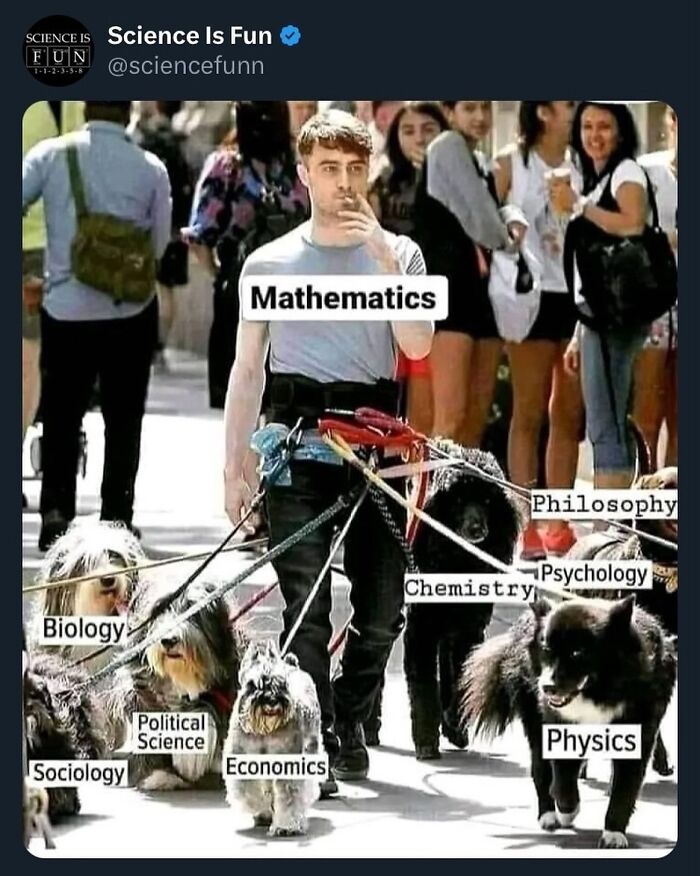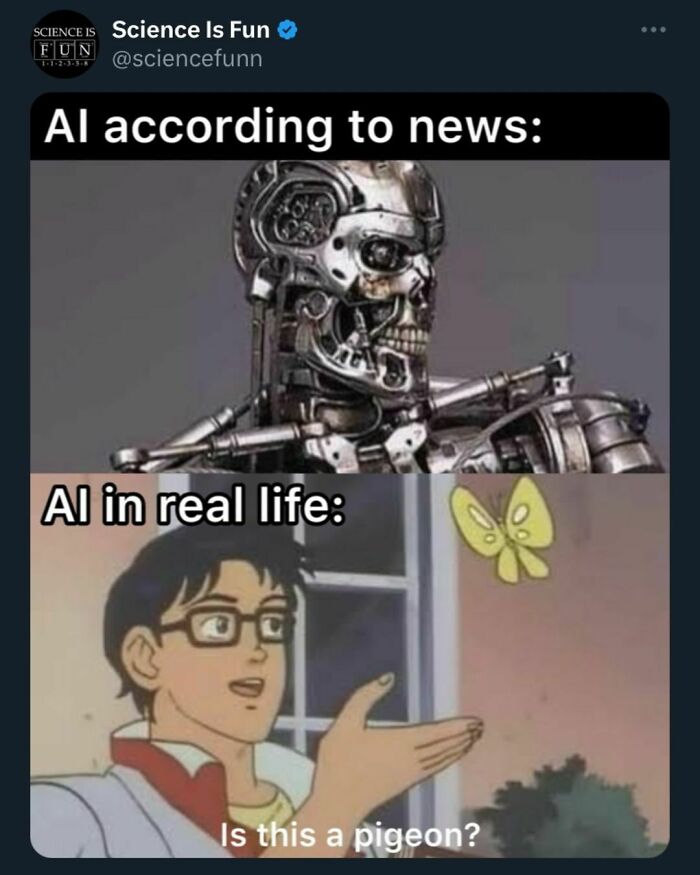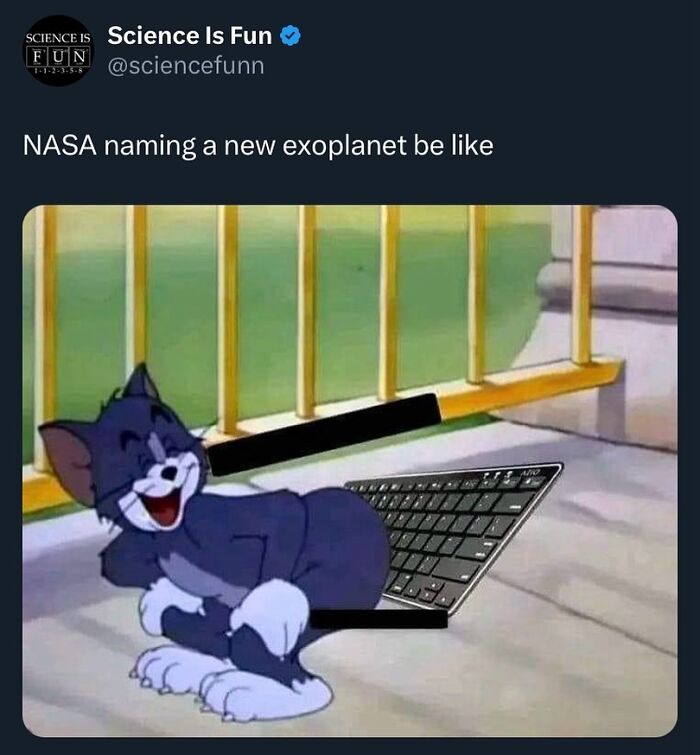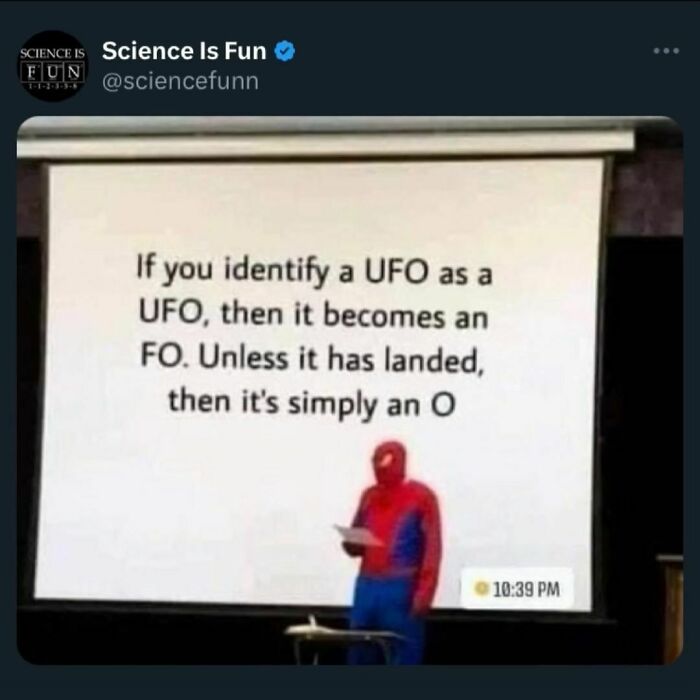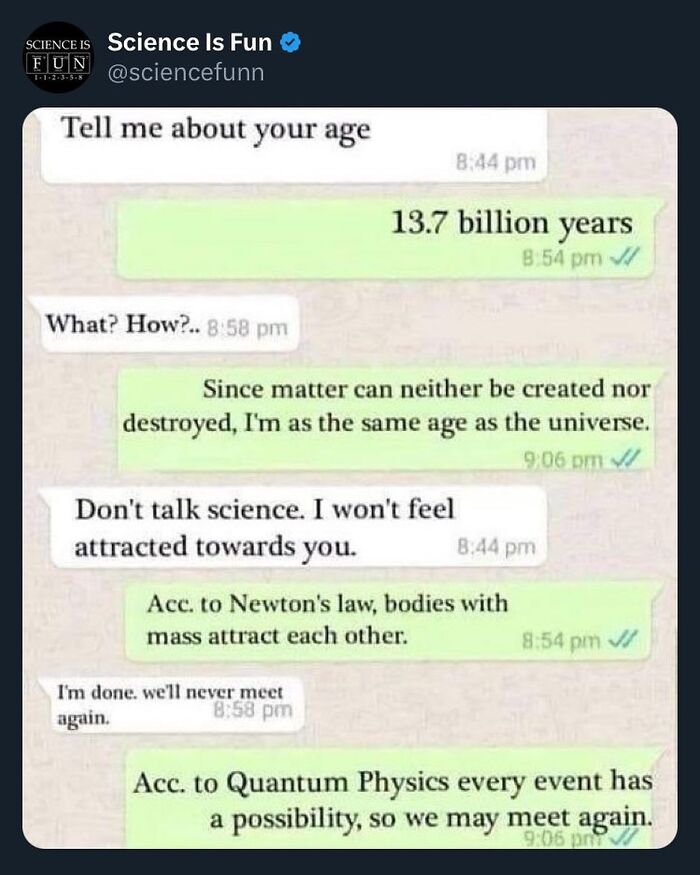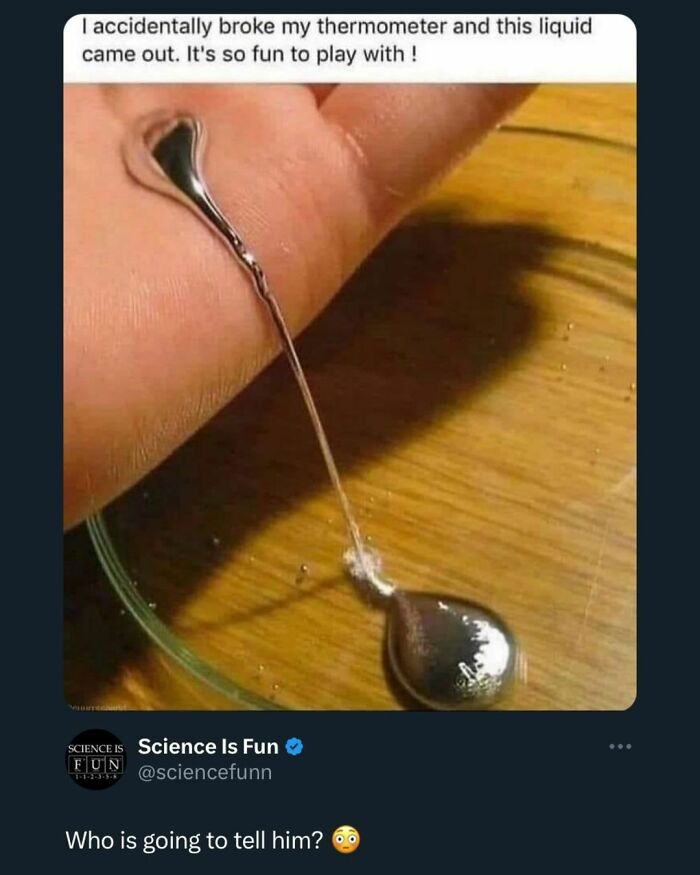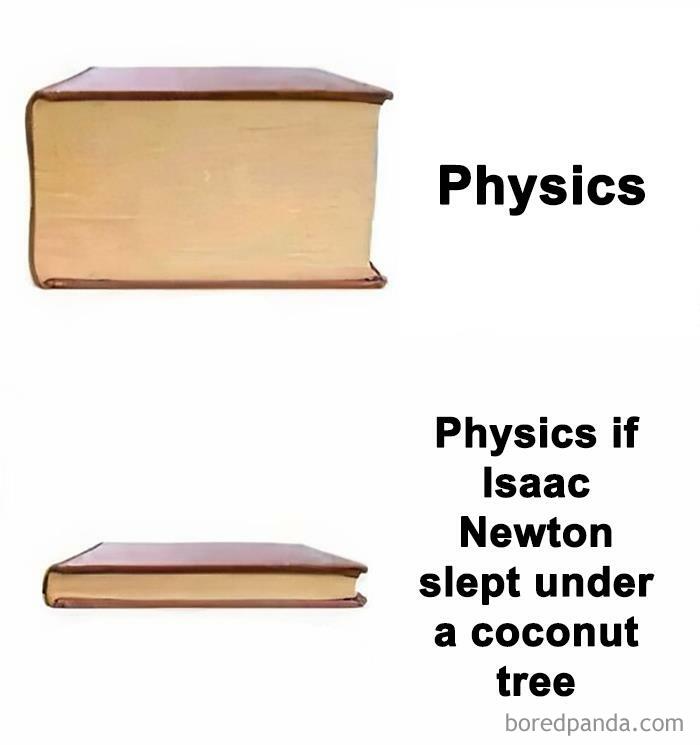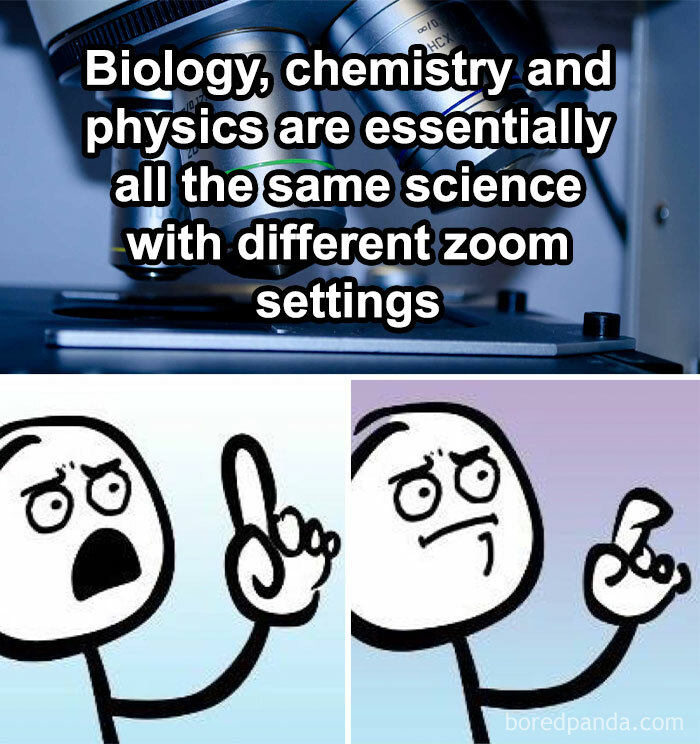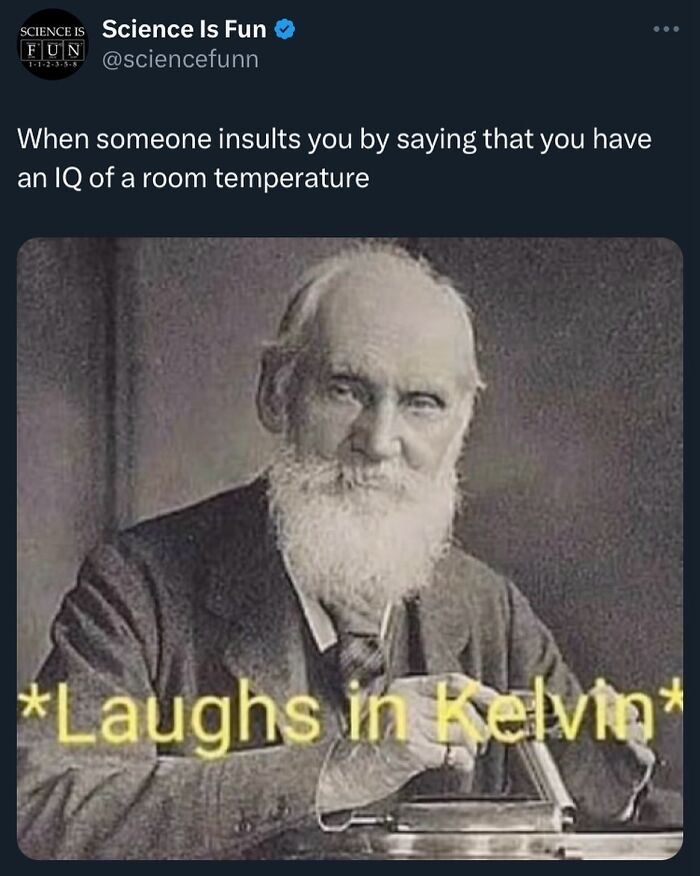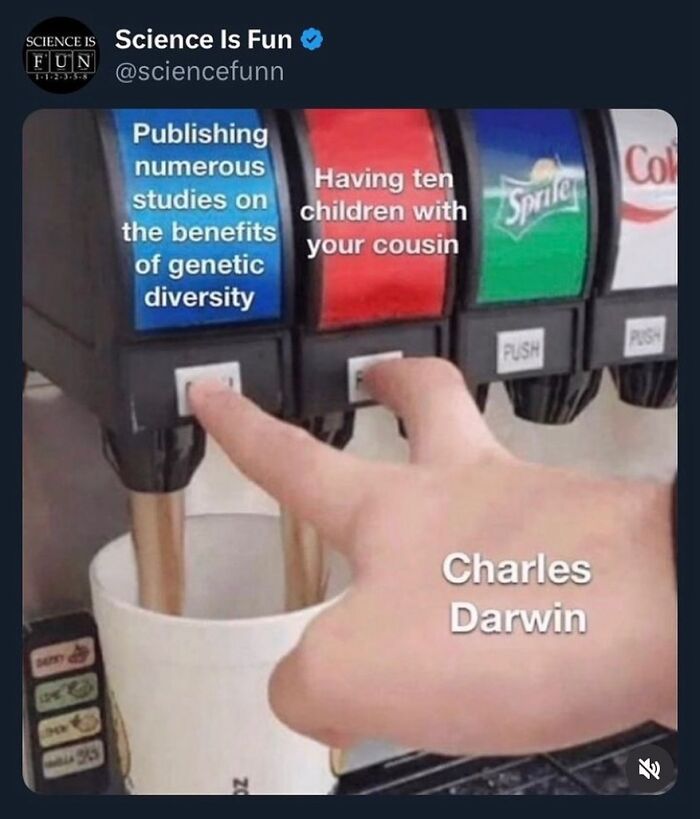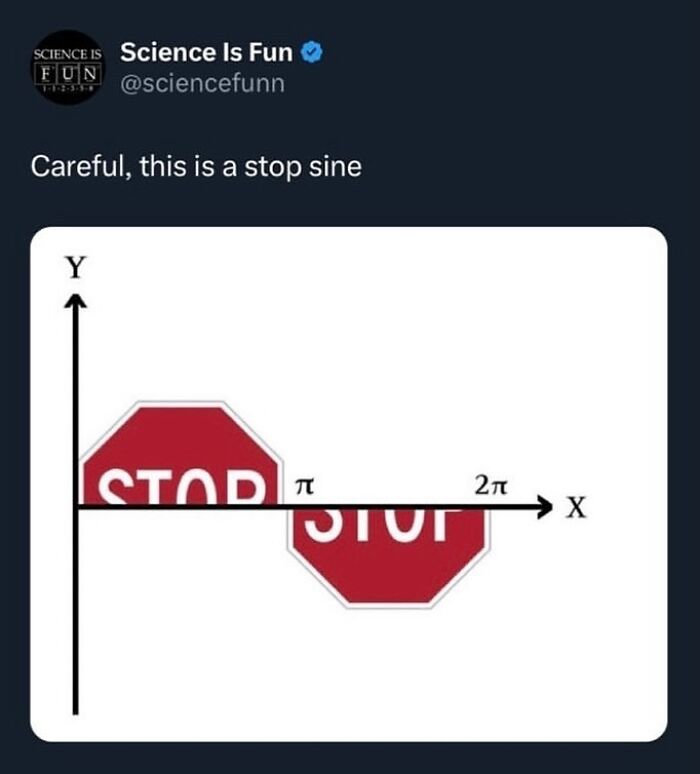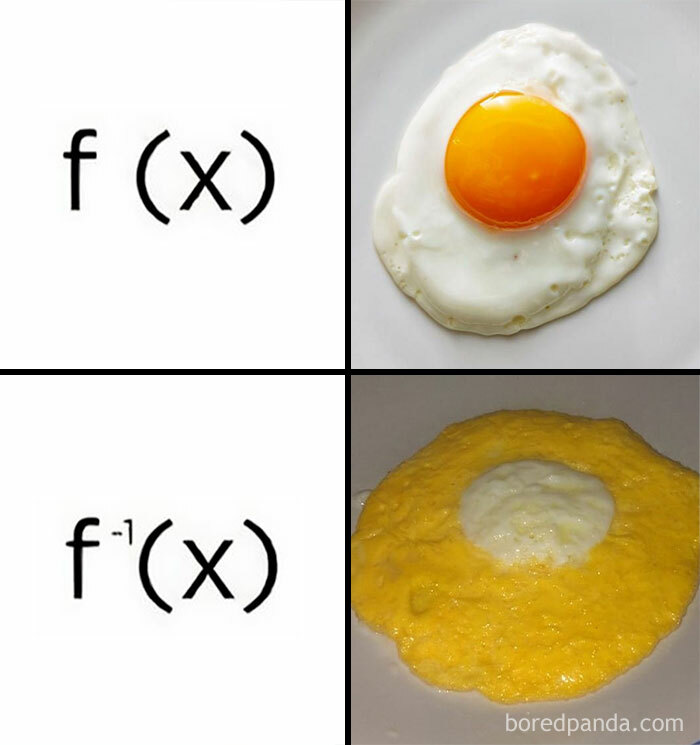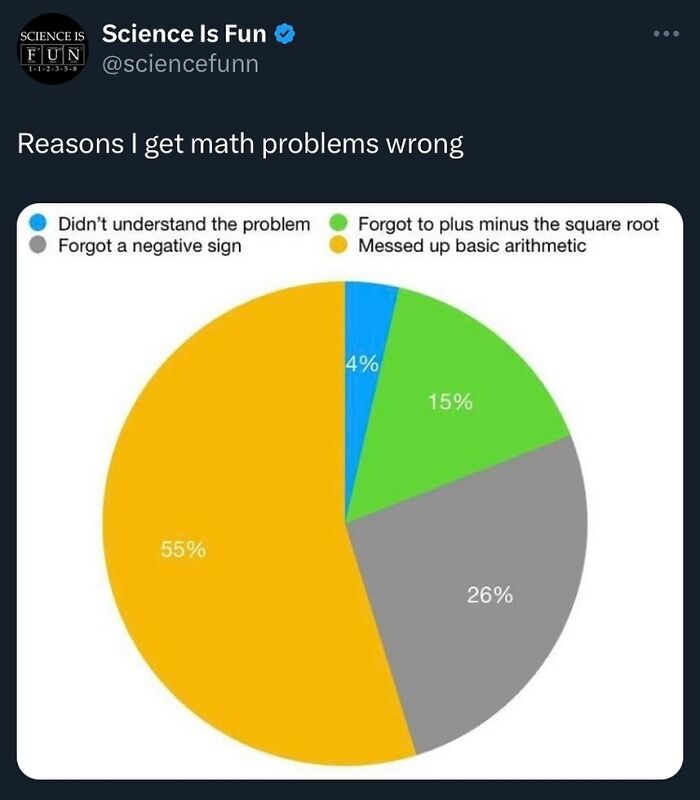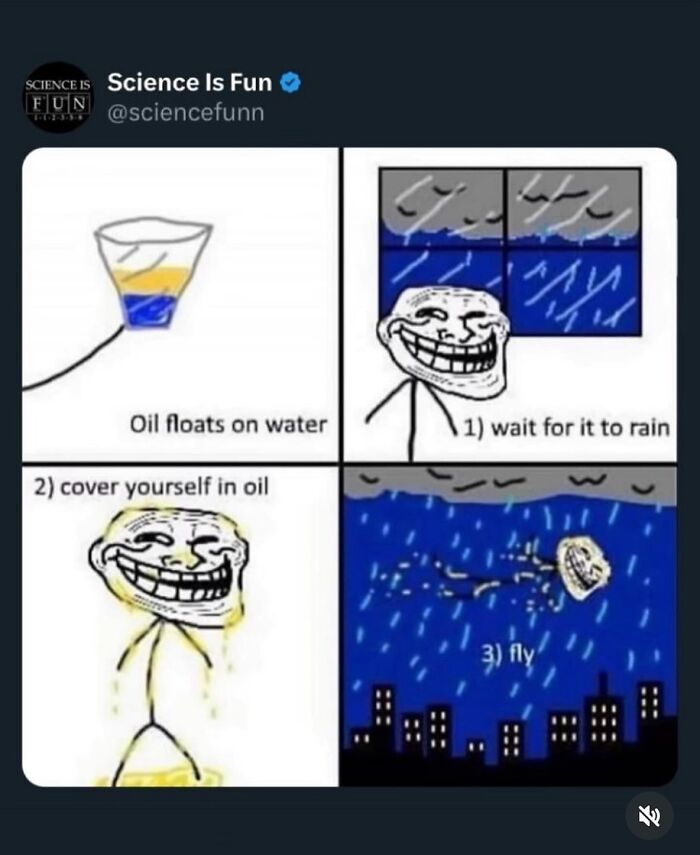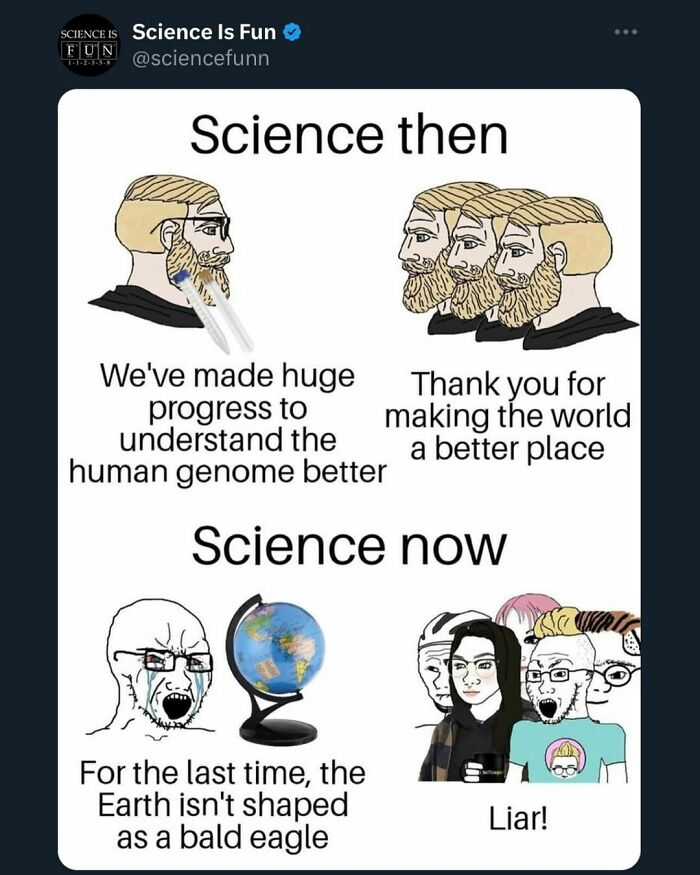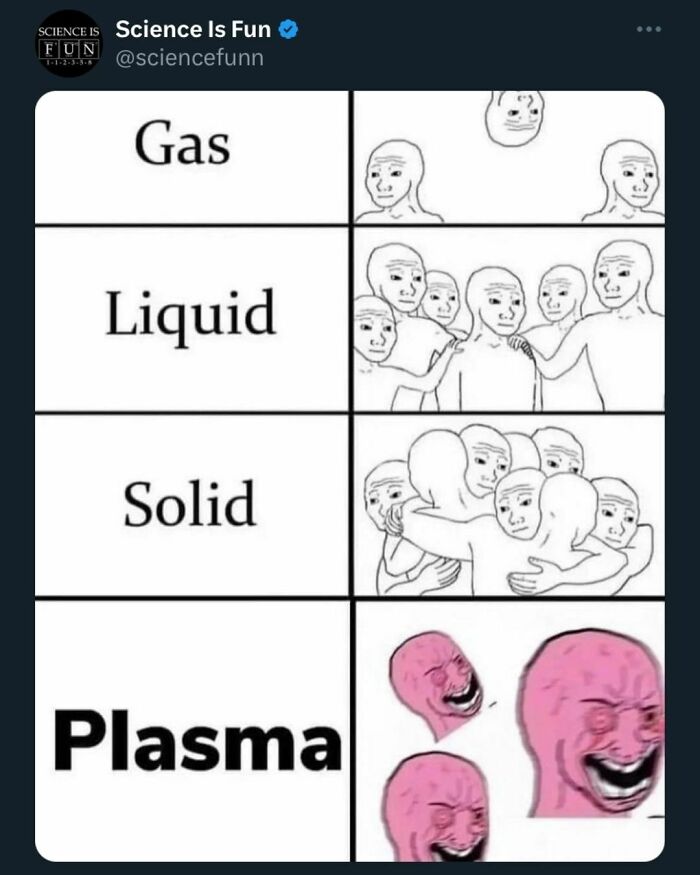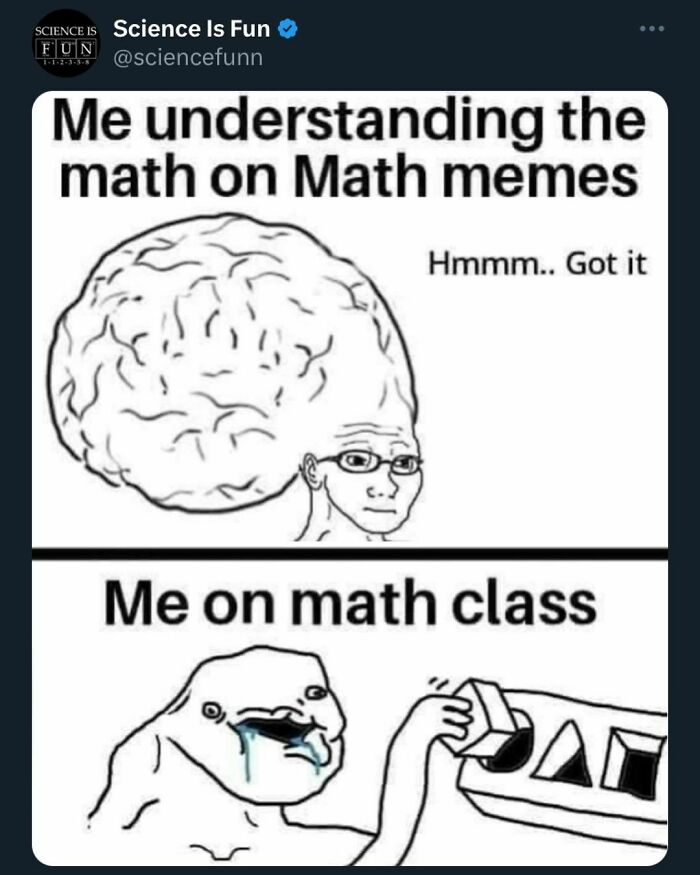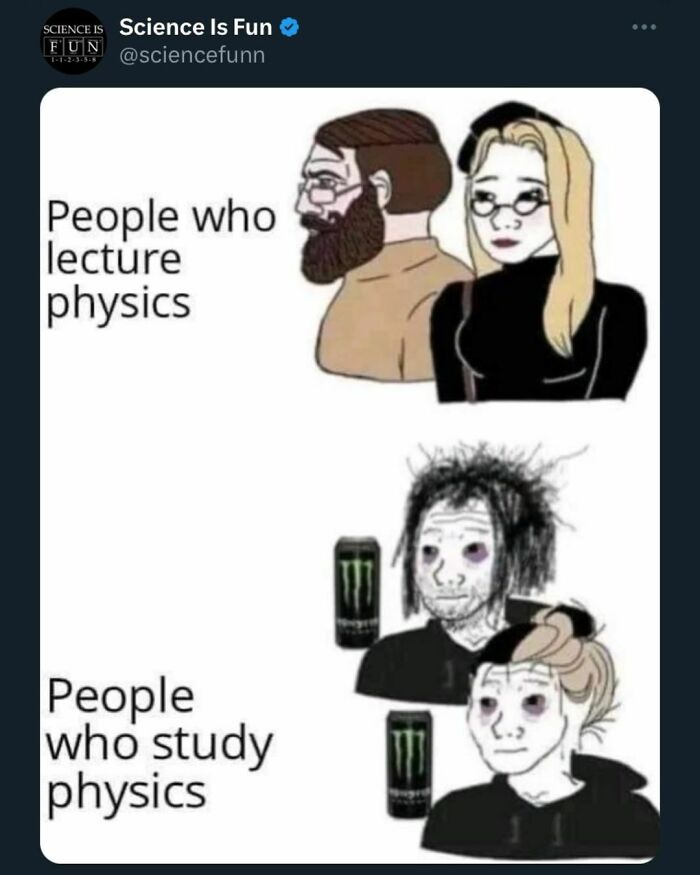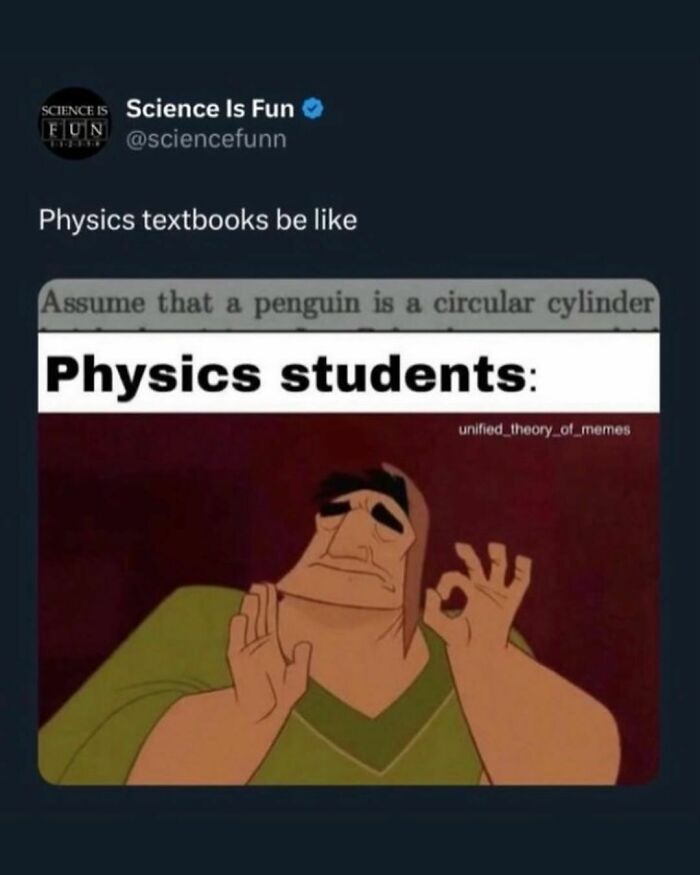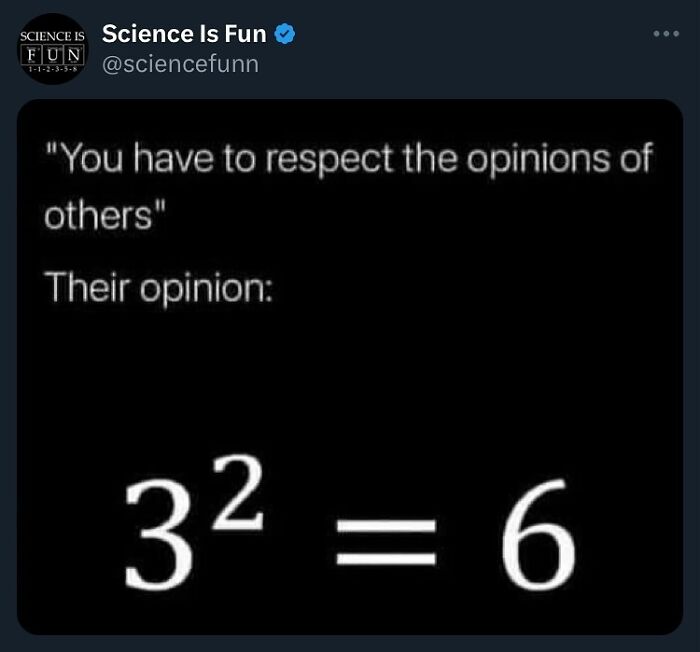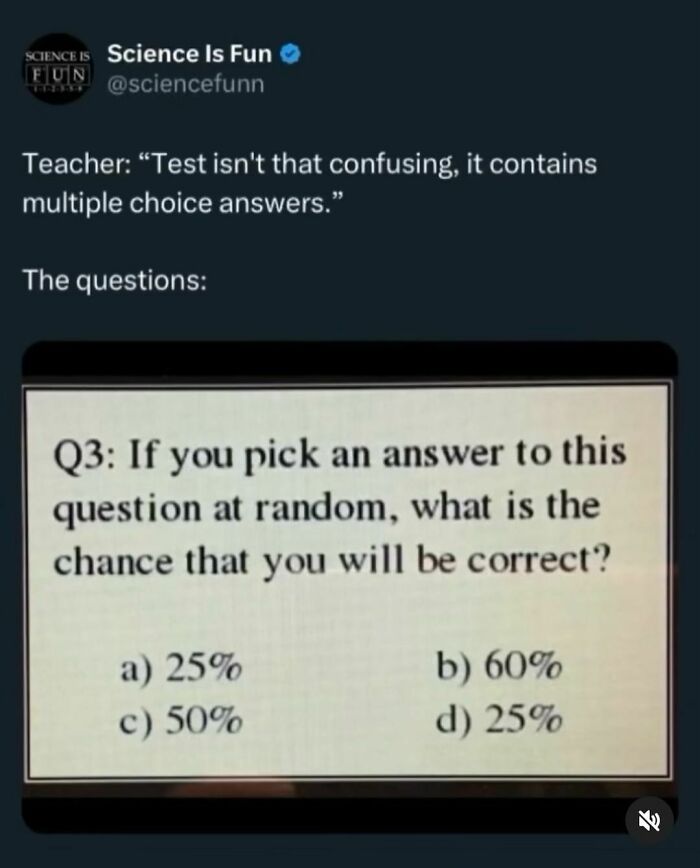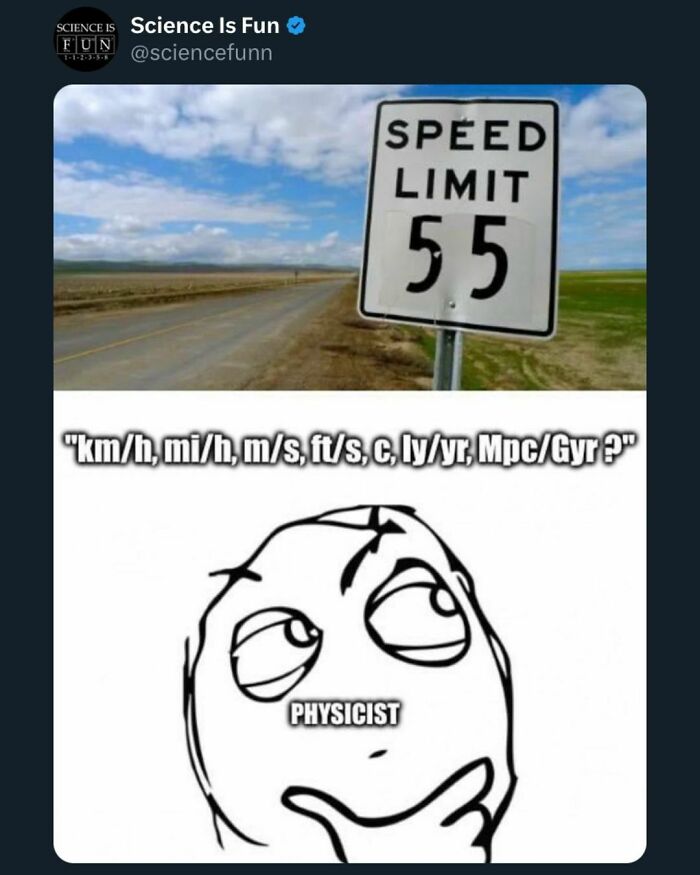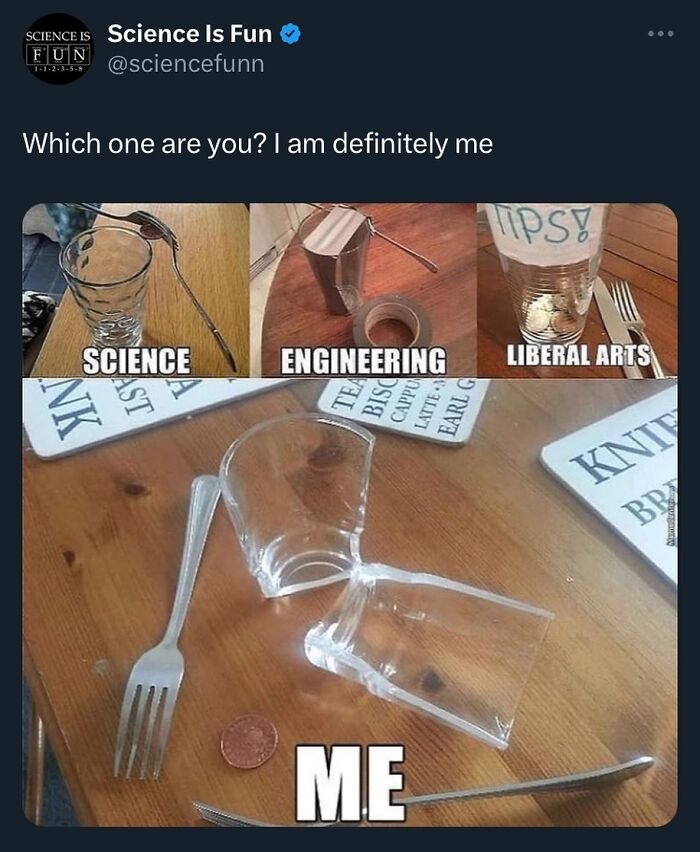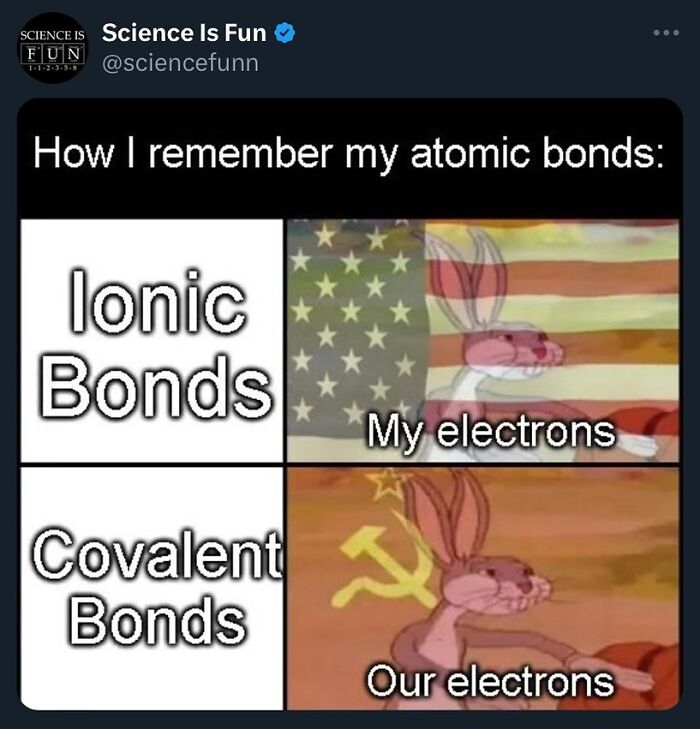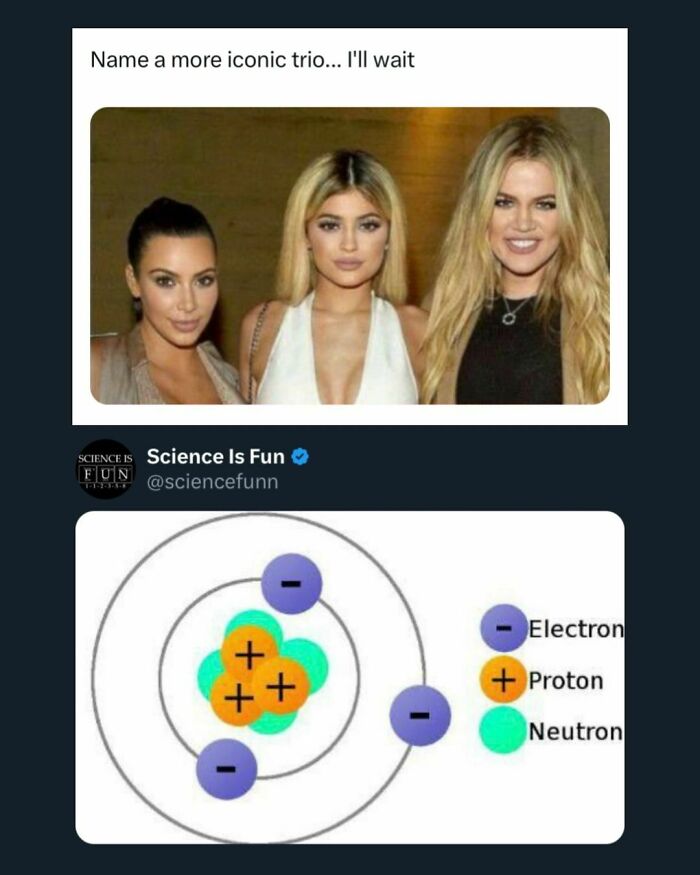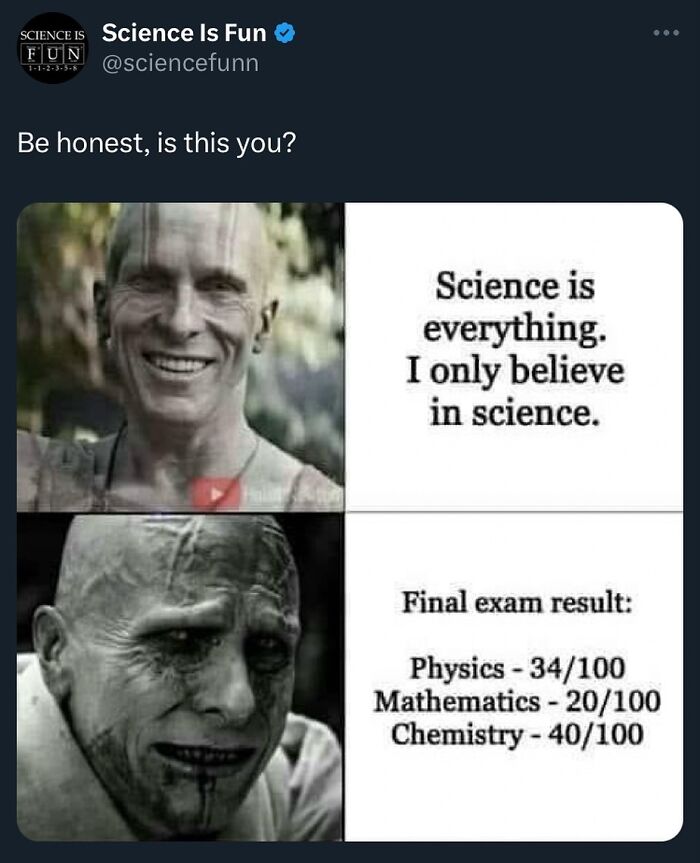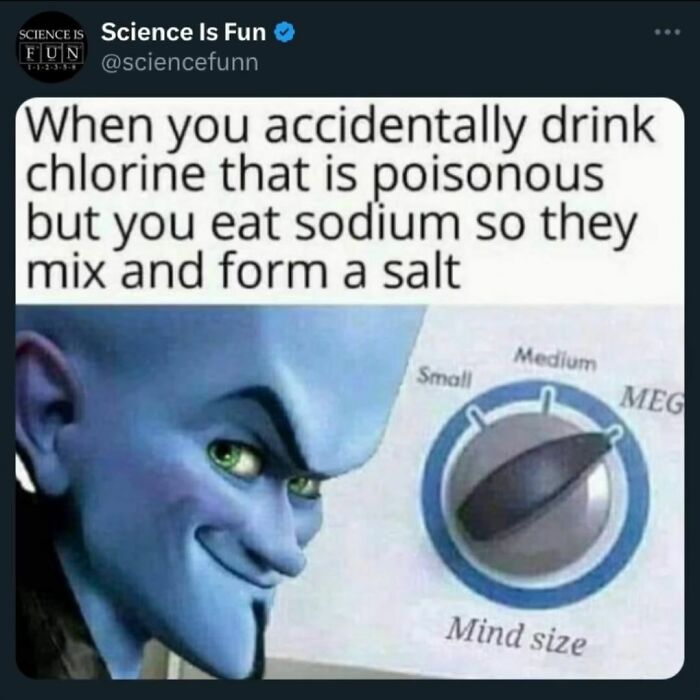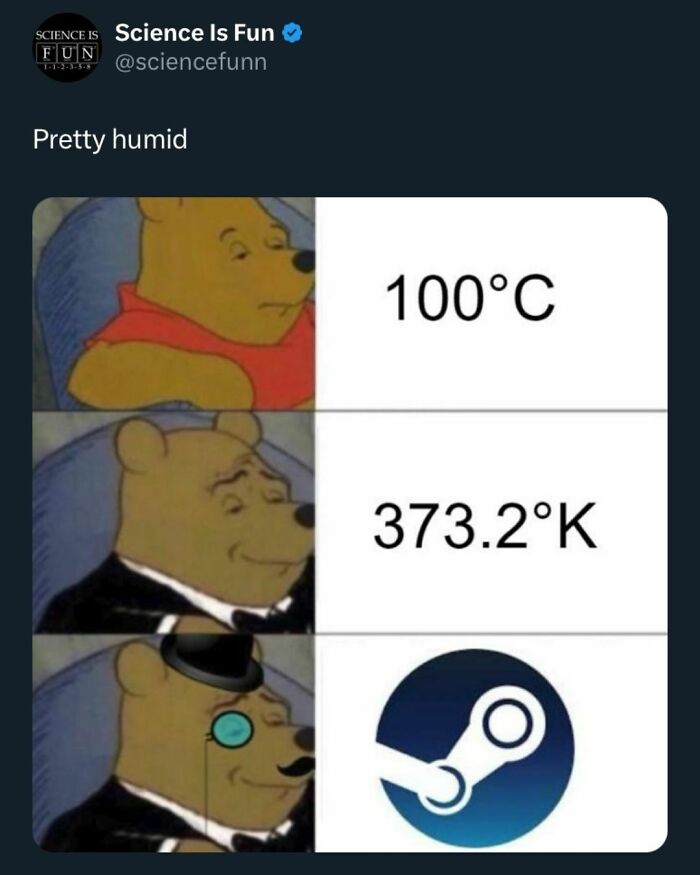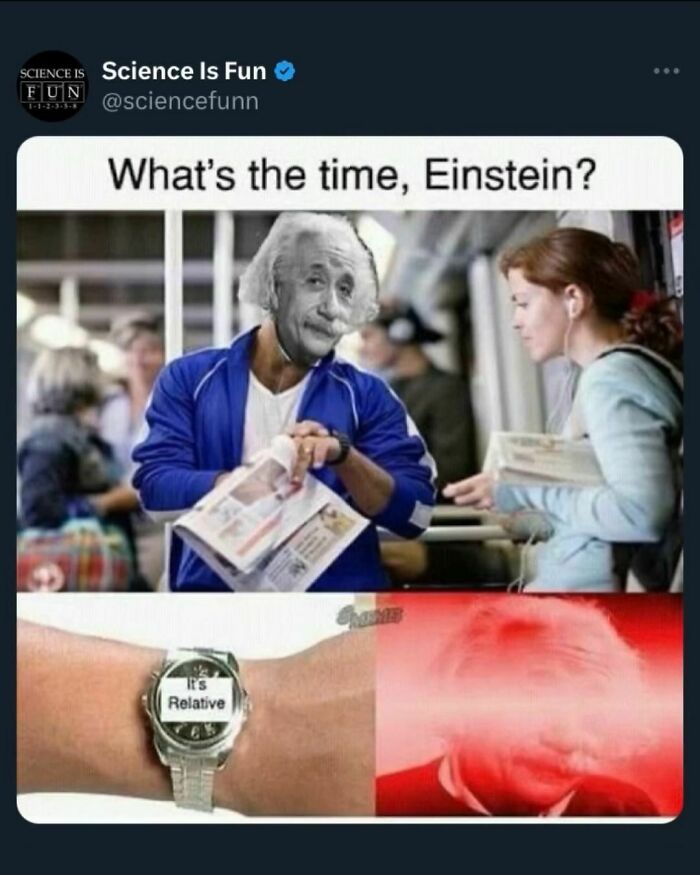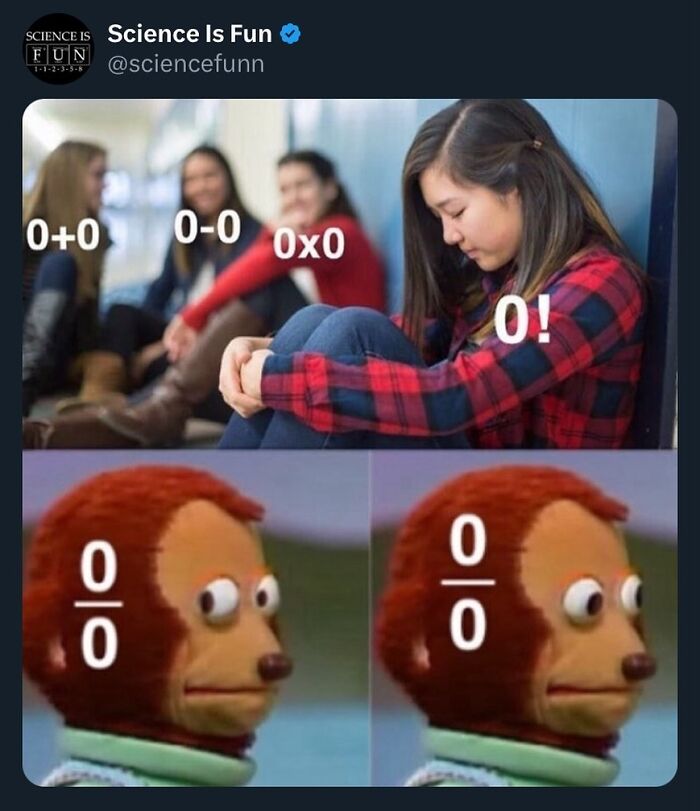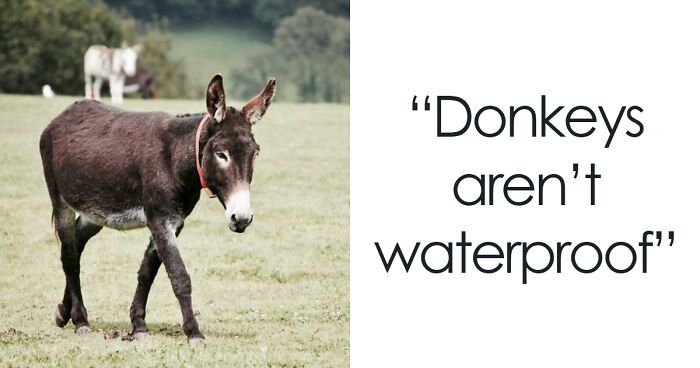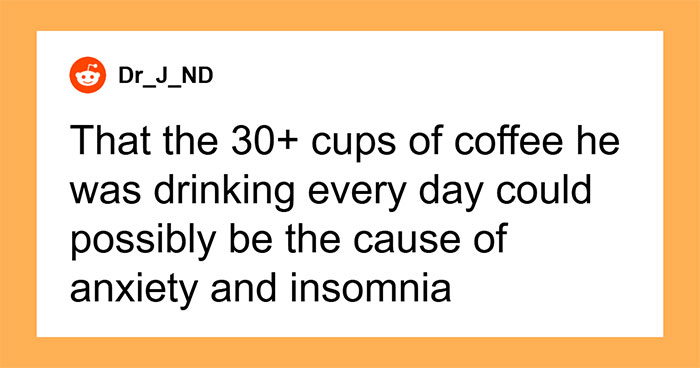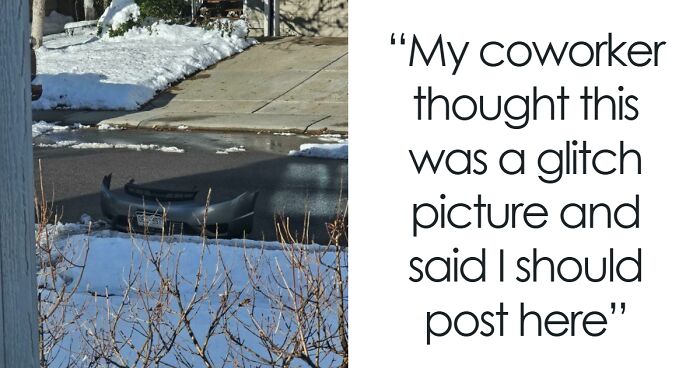The science world is in constant motion. Whether we're talking about sudden breakthroughs or meticulous and consistent efforts with incremental progress, there's always something new to uncover.
So the social media project 'Science is Fun' has set out to show everyone just how engaging these adventures can be. Run by Tomas Rosko, it shares memes that illustrate difficult equations and theories through relatable everyday scenarios.
Even the most abstract concepts can feel surprisingly familiar if you're willing to let them in!
More info: Instagram | X | YouTube
This post may include affiliate links.
Interestingly, you could make a case that as we're seeing an increase in science memes, we see fewer innovative papers.
Yes, there are more scientists than ever, there are more publications than ever, and there's much more funding than ever before.
In fact, federal funding for research and development has grown from $3.5 billion in 1955 to $137.8 billion in 2020, which equates to a more than tenfold increase even after you adjust for inflation.
Poetry: knowing where the cat is and making a cryptic description of it instead of being clear about it
Mathematics: writing a long paper describing the velocity of cats that nobody will read, but will be referenced in a bunch of physics papers about dogs
Load More Replies...Conspiracy theory: being in a dark room and looking for a black cat while yelling that the cat is fake
Everyday life is like being in a dark room and thinking "Thank God, now I can take a nap."
POLITICS: is like being in a dark room where one side wants to nurture the black cat and the other pretends that someone wants to eat it.
Taxes: is like being in a dark room and hearing, 'Can we use the cat as a business expense?'
capitalism: rent the dark room expensive for the extraordinaty experience to become lucky with a panther
Load More Replies...Philosophy would ask "what is the purpose of looking for the cat?" Metaphysics would ask "Does the cat or myself for that matter even exist?"
Philosophy would also ask "is the cat really a cat, or the idea of a cat?"
Load More Replies...I take a lot of comfort in science, rather than faith or mysticism. I like learning about the world around me, I like learning about people, their cultures, their experiences, and how that all affects their lives, their thoughts, motivations, urges, issues. I would rather have an understanding of my world and my fellow creatures than to rely on nothing but faith in myths and mythical creatures that no one can produce in the flesh. Especially since the groups who perpetuate those myths are controlled by humans, usually humans with self-aggrandizing motives and agendas to gain power and influence. And, of course, wealth. Snake oil salesmen promoting myths, manipulating and exploiting people who are weak minded, weak willed, or simply experiencing heavy difficulties that are making them vulnerable. To the point of convincing them that babies are born sinful, many of the horrible things done to people are all their own fault. WT Actual F? Way to f**k with someone’s head and totally screw them up—-and over, by constantly asking for donations and tithes, and passing the plate around on Sunday, even if your congregation can barely pay their rent, while the church has millions or billions, all tax free. Yeah, I much prefer science, which allows me to spot fakes and manipulators, and not fall for magic tricks and mind f***s.
Science is awesome and has saved millions of lives and made our world better, but be careful. You talk about "science" like a religion, while being very condescending. There are lots of people of many faiths who are good and kind and empathetic, and have learned about people and cultures through experience. You talk as if "science" makes people somehow noble but "self-aggrandizing motives and agendas to gain power and influence" can equally be used with many people in science and research. Many terrible things have been done in the name of "science". Dr Mengele's experiments, Eugenics, unethical d***s trials, vivisection. Remember science is only a search for answers, it does not make you inherently good or bad. Scientists are not infallible priests and "science" needs as much faith as religion, unless you have a PhD in that particular field. I take medicines, I have no idea how they work. I spend money on a mobile phone, I have no idea how it works. But I have faith.
Load More Replies...Anthropology: not finding the cat, but writing the most interesting and heart-wrenching etnography about the cat negotiating several identities under structural gender and class inequalities of post-colonialist exploitative dystopia and fluid political ecologies.
Too often, theology is some other person claiming to have found it, and then telling others they can't find it without their guidance, often imploring them to pay for the tour.
I joined the church I did because one of their basic beliefs is that you need to go directly to God and ask if they are right.
Load More Replies...True! And also reality: looking for the black cat with a flashlight and STILL not finding him unless he has his eyes open (been there!)
Load More Replies...In shadows deep, we cast a searching light To find the hidden cat of ebon shade; Yet see we not the creature's form outright, But only what reflected beams have made. Our eyes perceive but echoes of the true, Through senses and through tools our sight is bent; Thus science strives to render all anew, Constrained by means through which our minds invent. We ponder then, can truth be fully known, If all our grasp is but a filtered guise? As Kant once mused, the "thing-in-itself" is shown Not as it is, but as it meets our eyes. Though veiled, the world invites us to explore; Through seeking, we transcend what came before.
SCIENCE: is like being in a dark room and looking for a black cat that is both there and not there.
Lab Tech: Looking for a cat in a dark room, so you can take samples to figure out how cats work and what they are made of and for.
Actually, Theology is finding the black cat and burning it at the stake.
Psychology: Raising a black cat in a dark room to see what happens.
Philosophy is more like being in a dark room and asking what a room is. Metaphysics is more like being in a dark room and asking what is the meaning of darkness. Theology is more like being in a dark room and asking who made the room, and how can I contact them. Science is more like being in a dark room and asking if it is just as dark in one part of the room as it is in another part, and then figuring out how to measure the the minuscule differences.
But the cat shouldn’t need to use a flashlight. It can see in the dark.
Horror is being in a dark room looking for a black cat and hearing a faint *hurk hurk hurk* somewhere nearby.
I know there are possibilities, but I can't believe in them unless I know there is a basis of fact, or reality. I can never understand people who blindly believe in something with having no knowledge of a subject, just believing someone else. I think it must be comforting and wish I could do it. My teachers (even now) got irritated when they state something and I ask 'why?'.
Quantum Mechanics is like putting a poison with a radioactive fuse in the room and leaving
Unfortunately, science has no flashlight, just a lot of trial and error....
The flashlight is called proof. Which can be adjusted when new evidence is revealed,
Load More Replies...Makes me wonder if those hieroglyphs also contain feelings and emotions in their meanings
But outside of a few specific areas, like AI and biotechnology, does it really feel like we're in a golden age of science?
Writer Kelsey Piper thinks that we're not. As she pointed out, the early 20th century saw discovery after discovery that radically changed our comprehension of the world we lived in and upended industry: nitrogen fixation (which made it possible to feed billions), the structure of the atom and DNA, rocketry, plate tectonics, radio, computing, antibiotics, general relativity, nuclear chain reactions, quantum mechanics...
There might be more science now, but it feels like the current trends can't compare to the 20th century in terms of discoveries that change the world.
For Mañana Man, who doesn't know how science works: https://www.ces.fau.edu/nasa/introduction/scientific-inquiry/how-do-scientists-collaborate-and-reach-consensus.php#:~:text=Reaching%20consensus%20allows%20scientists%20to,that%20have%20occurred%20over%20time.
One study that looked at patents and papers to measure how much future research was built on a given publication, or how much a given piece of work served to "push science and technology in new directions" supports the idea that there are fewer radical innovations than there used to be.
As researchers from the University of Minnesota and the University of Arizona noted, previous data also indicates there's "declining research productivity in semiconductors, pharmaceuticals, and other fields. Papers, patents, and even grant applications have become less novel relative to prior work and less likely to connect disparate areas of knowledge, both of which are precursors of innovation. The gap between the year of discovery and the awarding of a Nobel Prize has also increased, suggesting that today's contributions do not measure up to the past."
The moon landing WAS faked. NASA filmed it. However, they hired Stanley Kubrick to do the filming, and he was such a perfectionist that he insisted on shooting on location.
The authors of the study analyzed 25 million papers (1945–2010) and 3.9 million patents (1976–2010) according to a new metric, the so-called "CD index," which determines whether papers are mostly "consolidating" (or building on) knowledge in the field, or whether they’re “disrupting” the field and pointing toward new, fresh avenues of research.
The idea is that if a paper builds on previous work, citations of that paper will generally also cite previous work, but if a paper blazes a new research direction, then citations of that paper are less likely to cite previous work. The lower the CD score, the less disruptive the research.
For example, the 1953 paper on the structure of DNA by James Watson and Francis Crick scores very high as "disrupting" on the CD index — it proposed a new view of DNA, and papers citing it didn't bother citing the old, wrong models of DNA that it corrected.
I don't have a favorite line from this because literally every single sentence is pure gold lmfao
If this were actual, how would the ocean refill after draining constantly over its “edge?”
The researchers suspected that "disrupting" papers, ones that change the field and point in new research directions, are on the decline. And that was exactly what they found.
In the "social sciences," "the average CD5 dropped from 0.52 in 1945 to 0.04 in 2010."
In "physical sciences," "the average CD5 decreased from 0.36 in 1945 to 0 in 2010."
For "drugs and medical" patents, "the average CD5 decreased from 0.38 in 1980 to 0.03 in 2010."
And for "computer and communications" patents, "the average CD5 decreased from 0.30 in 1980 to 0.06 in 2010."
They can run as fast as a bald Tom Cruise driving a Ford Focus being pulled backwards by three large llamas wearing aprons
So why aren't scientists discovering new things? Have we already discovered all the transformative and crucial things?
Not necessarily. Piper, for example, believes that it's possible the slowdown is not an inevitable natural law, but a result of policy choices.
"The way we hand out scientific grants is flawed," she explained. "Despite the record level of funding, we know that visionaries with transformative ideas — like Katalin Karikó, who did crucial early work to invent mRNA vaccines — struggled for years to get grant money. And getting money requires jumping through a growing number of hoops — many leading scientists now spend 50 percent of their time writing grant proposals so they can spend the other 50 percent ... doing science."
Haha! But infinite possibilities doesn't mean anything can happen. There are an infinite number of rational numbers between zero and one, but none of them are two!
Nowadays, scientists have to publish to keep their jobs. "Saying that the science slowdown is inevitable because our predecessors already grabbed all the good ideas might blind us to the possibility that science is slowing down because we're actively mismanaging it, directing researchers away from the best uses of their time and the most crucial research and toward small incremental papers that keep funders — and tenure review committees — happy," Piper added.
Disruptive papers often correlate with innovations that increase productivity, improve quality of life, raise wages, and save lives. Some have even speculated that the drop in productivity and wages in the US is driven by the slowing of scientific innovation. Not to mention there's less content for memes!
If you want to see more, check out Bored Panda's earlier article on 'Science is Fun.'
OMG, whenever I do this I calculate in my head how many steps I'm saving.
Haven't seen these in a while! keep em coming! and I have one: why is it iron man...and not fe male?
This improved my outlook on the human race immeasurably. Use a banana for scale
Haven't seen these in a while! keep em coming! and I have one: why is it iron man...and not fe male?
This improved my outlook on the human race immeasurably. Use a banana for scale

 Dark Mode
Dark Mode 

 No fees, cancel anytime
No fees, cancel anytime 


